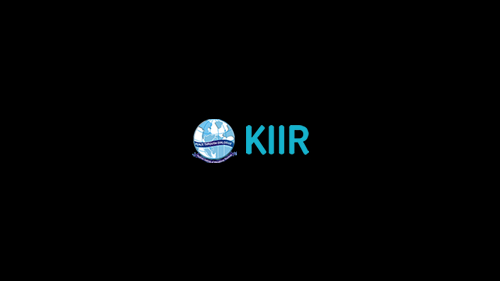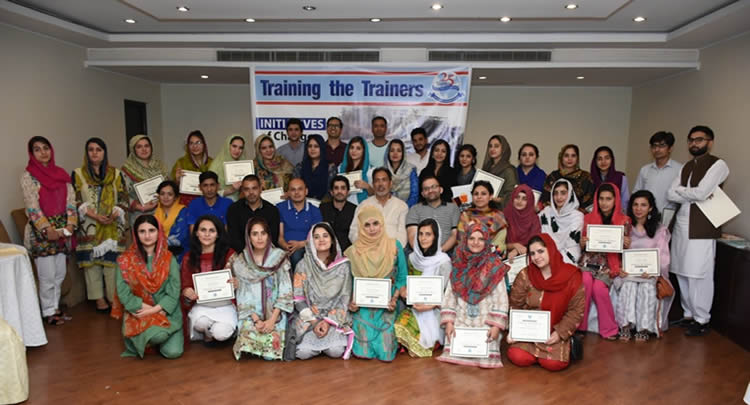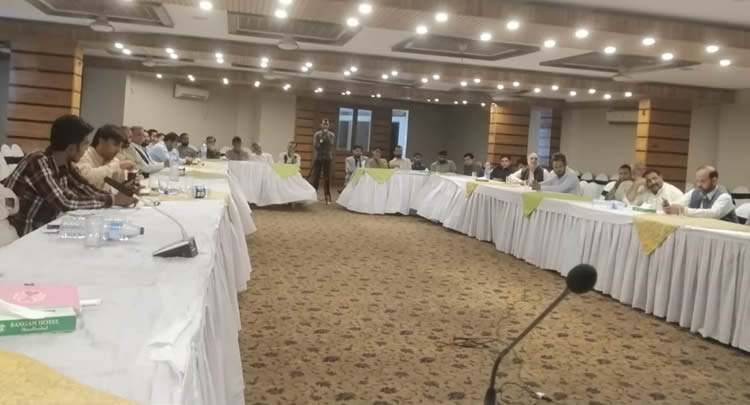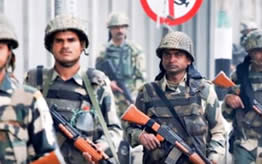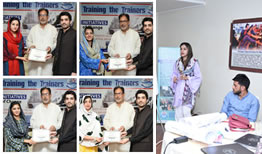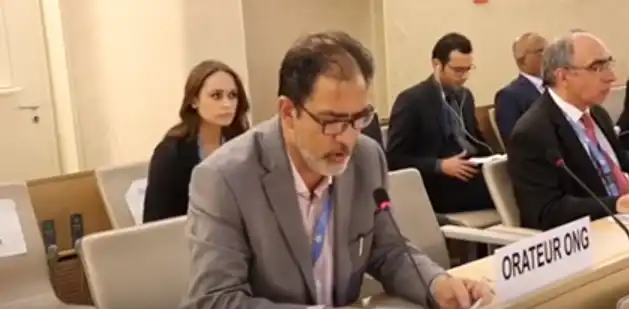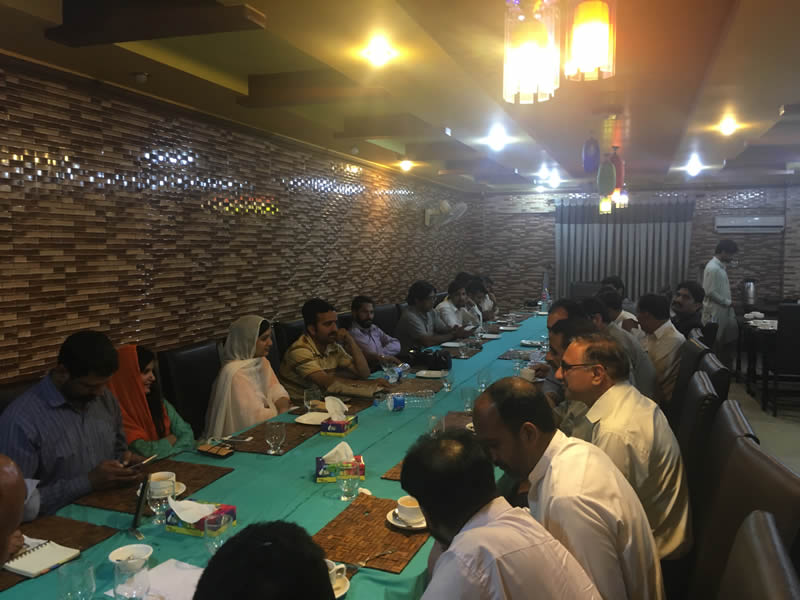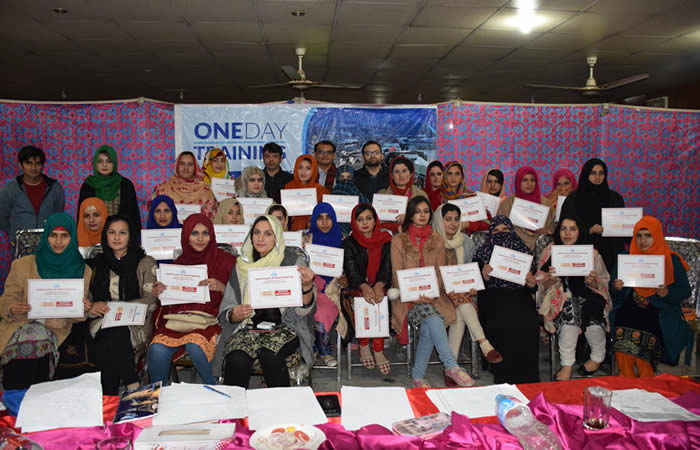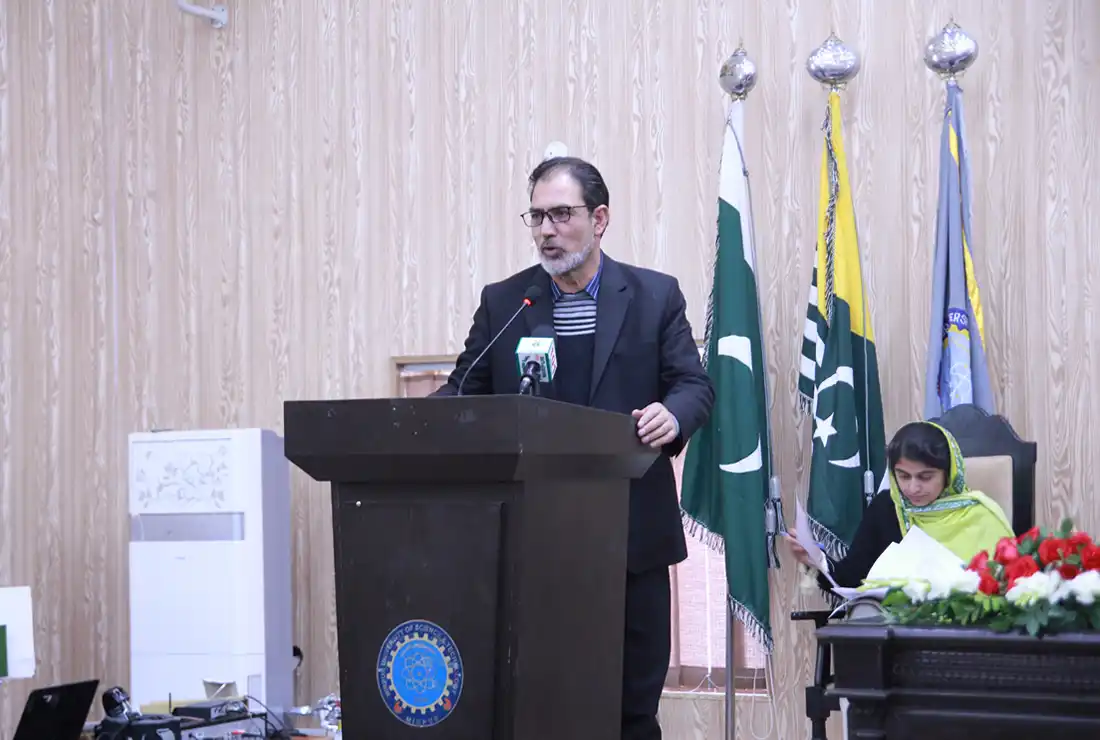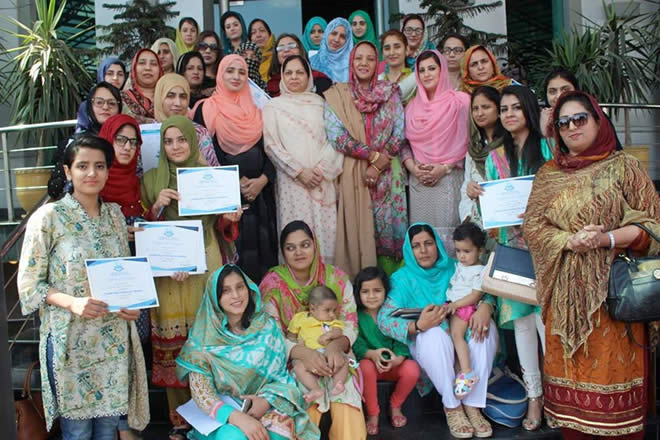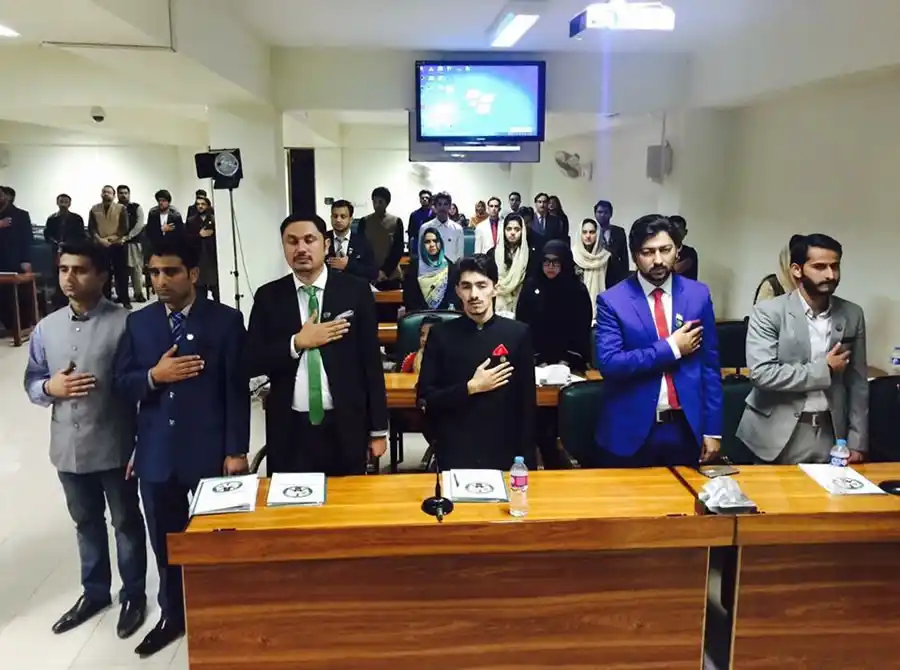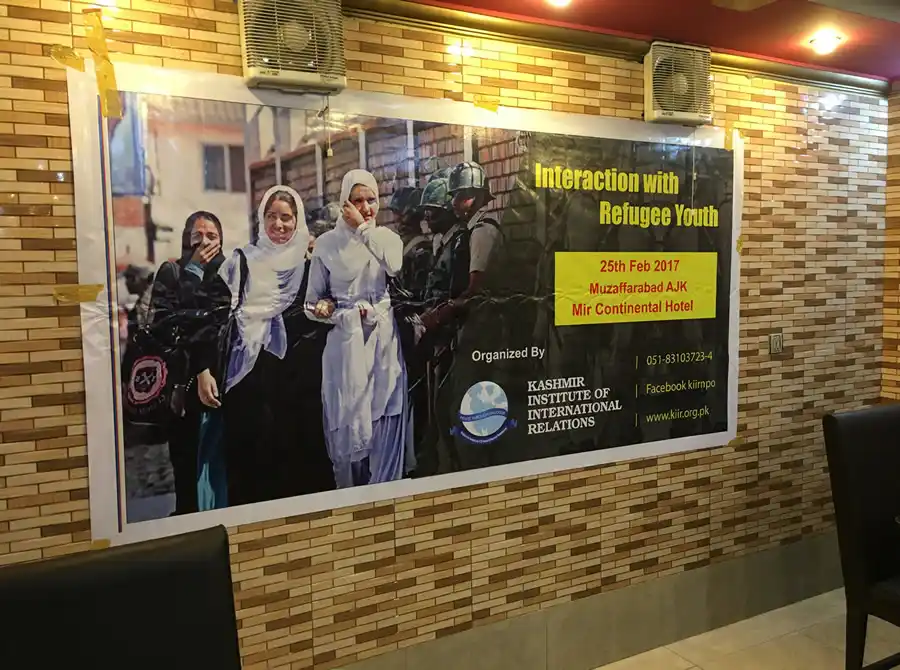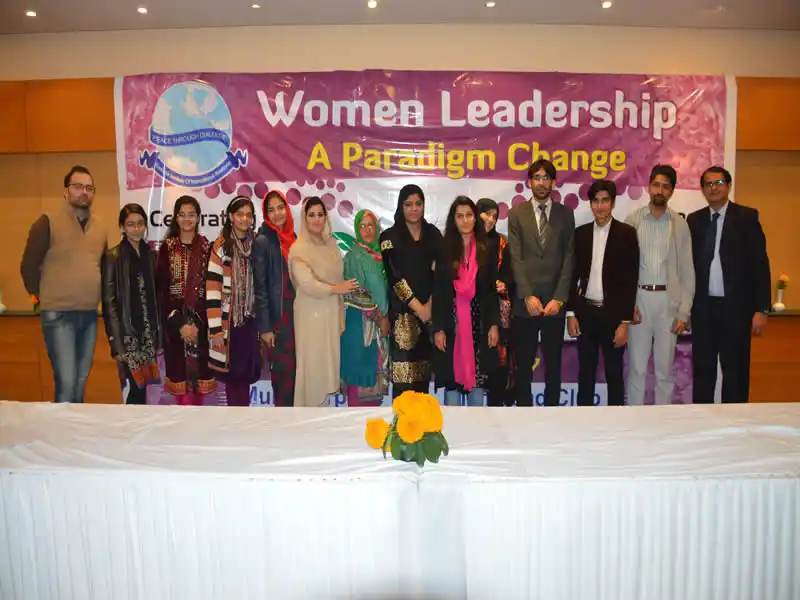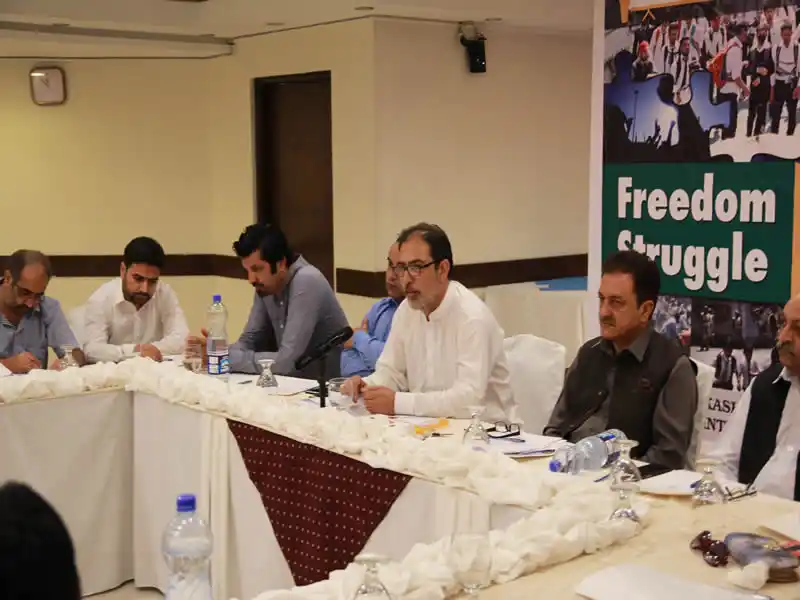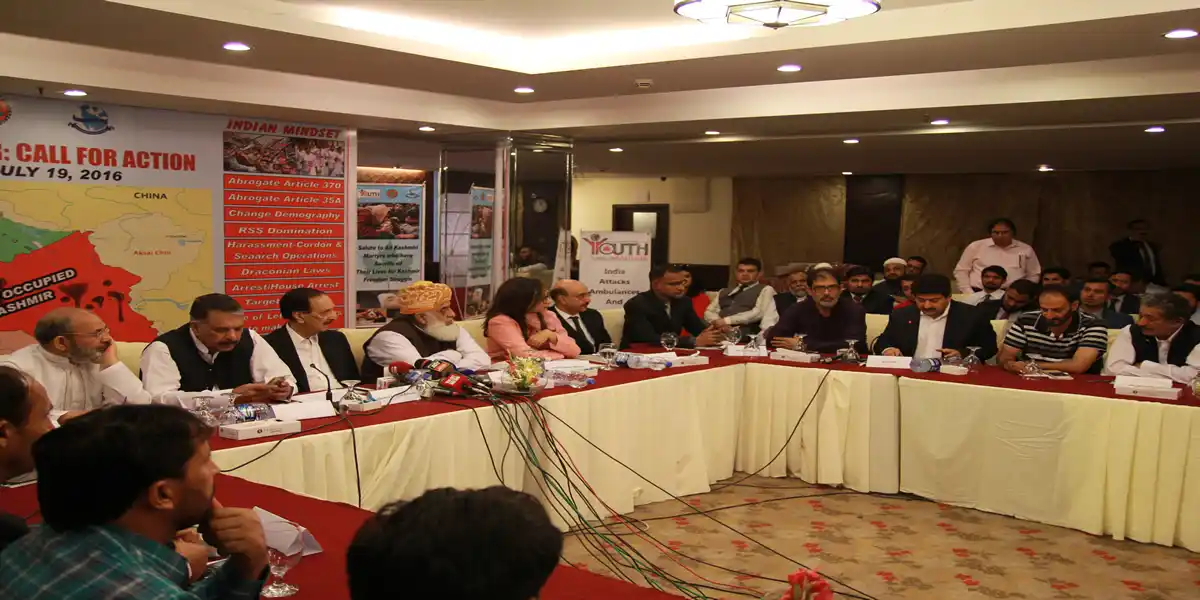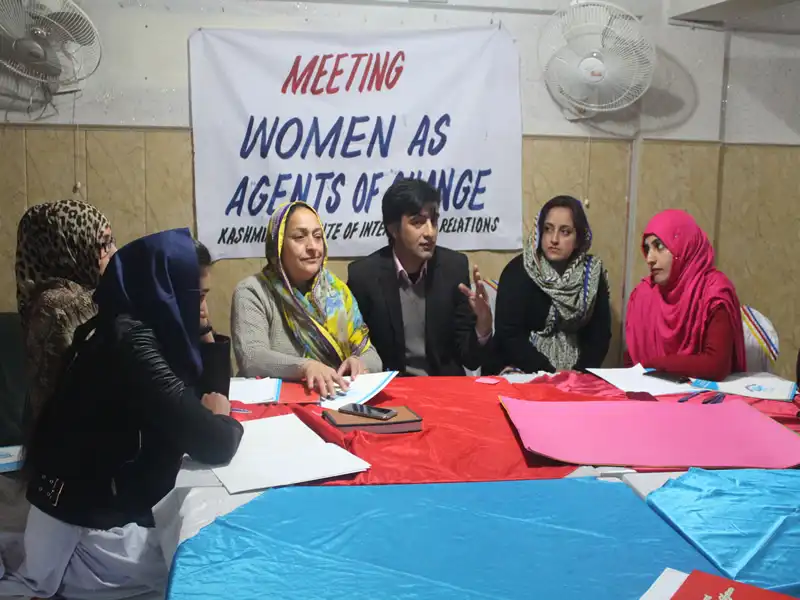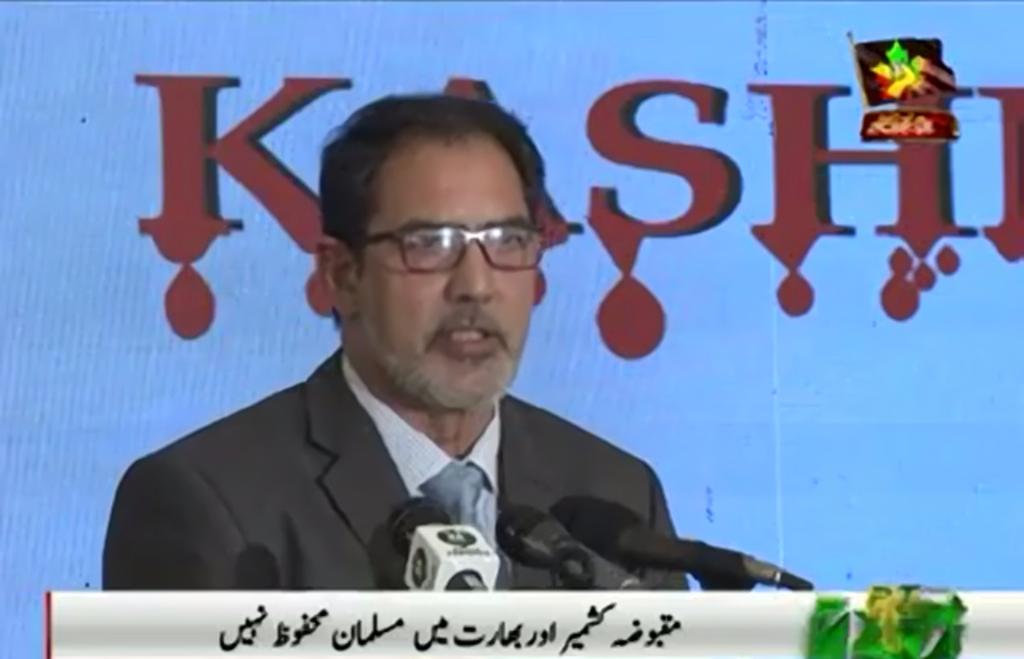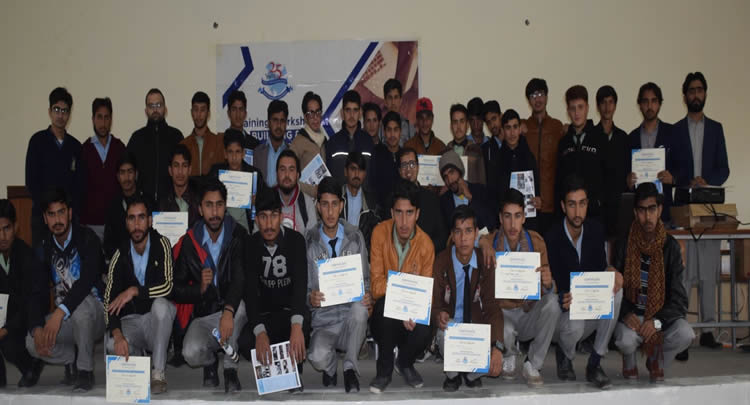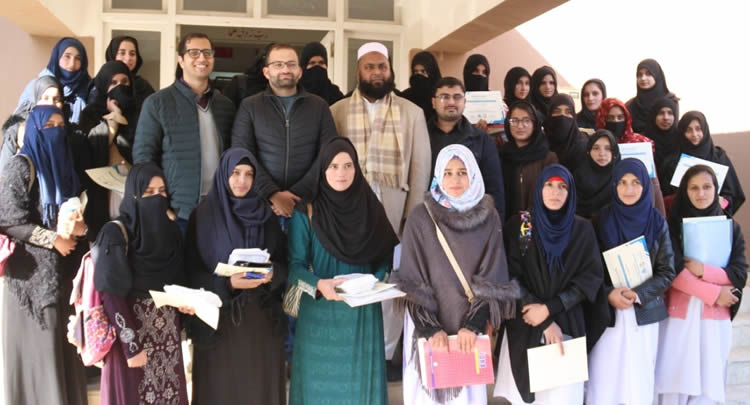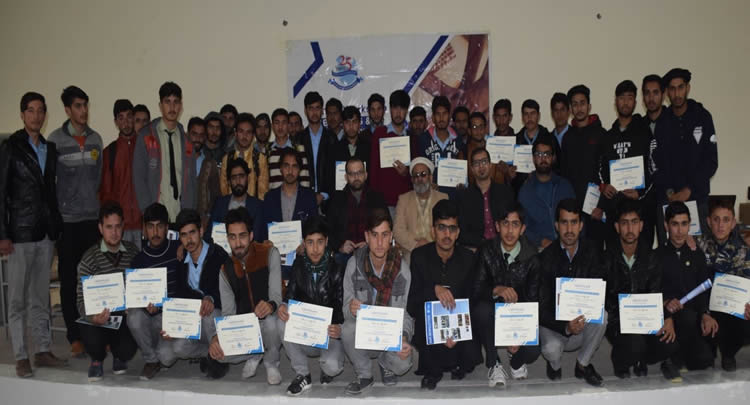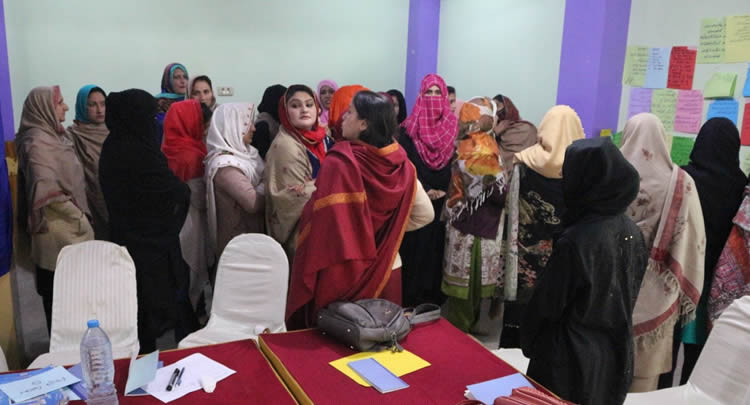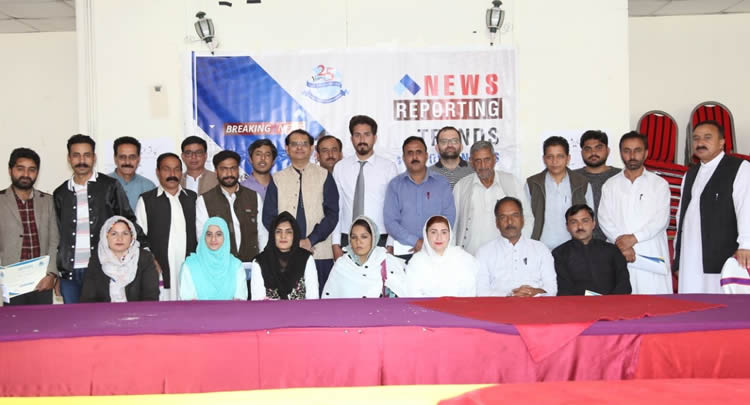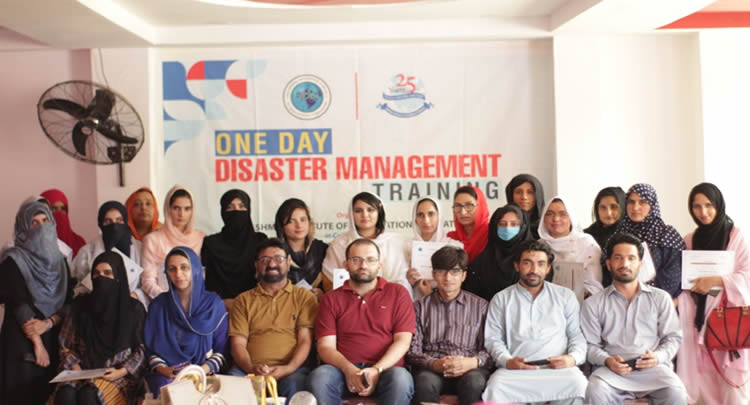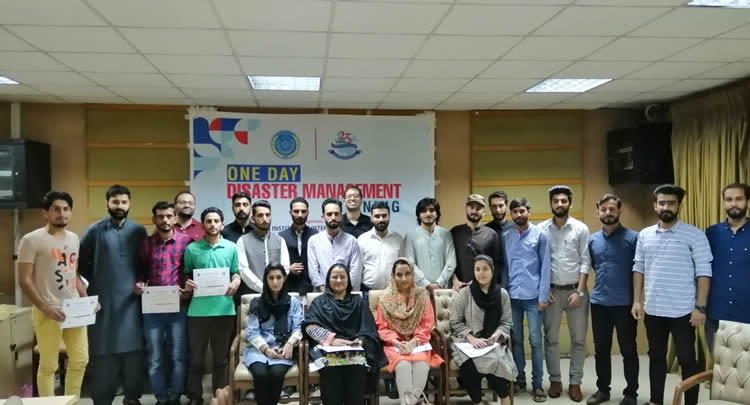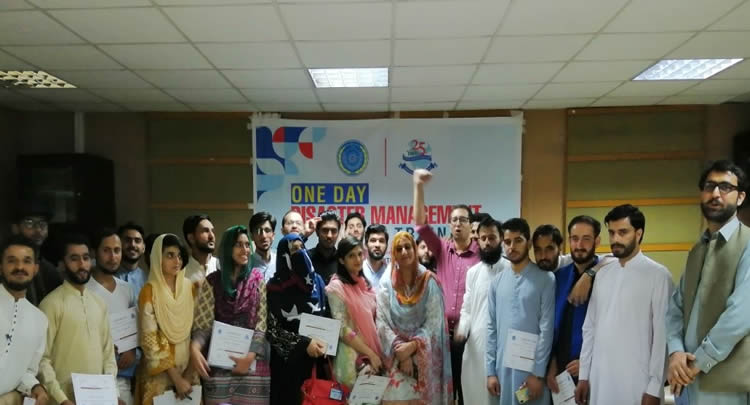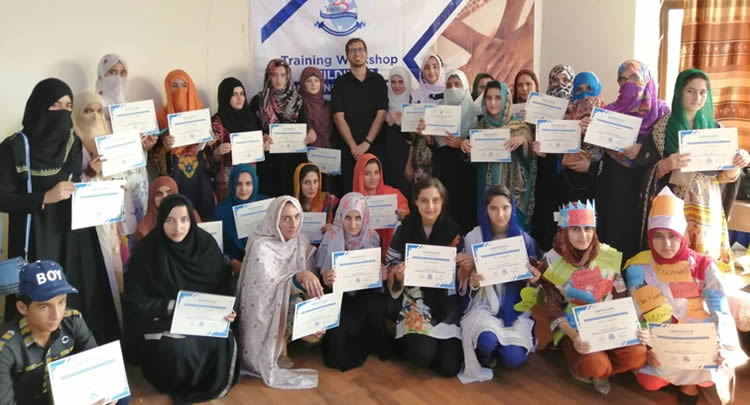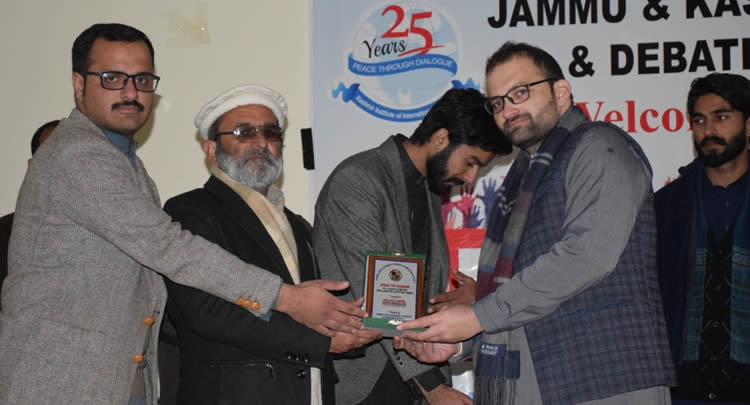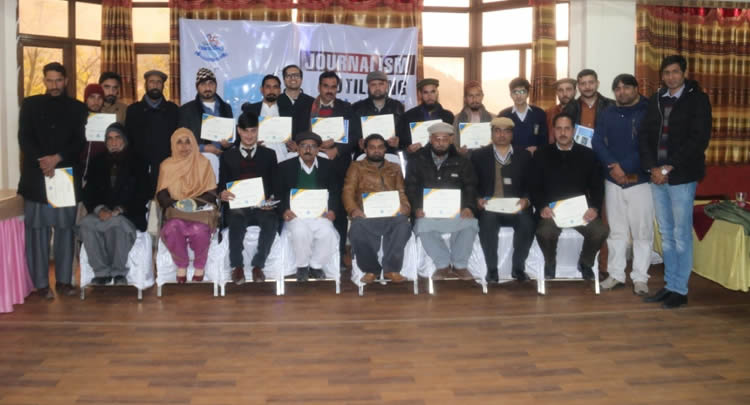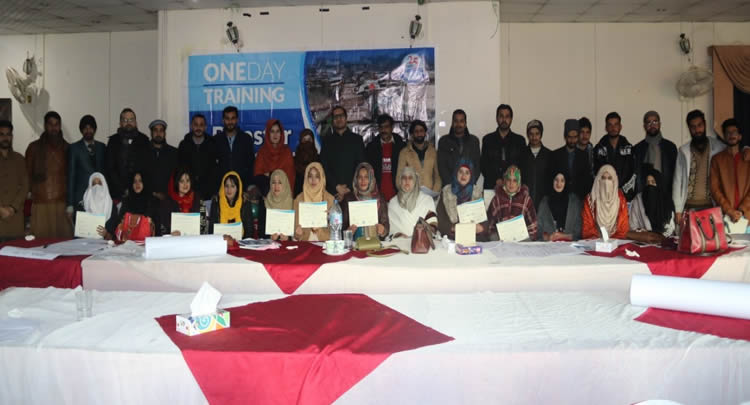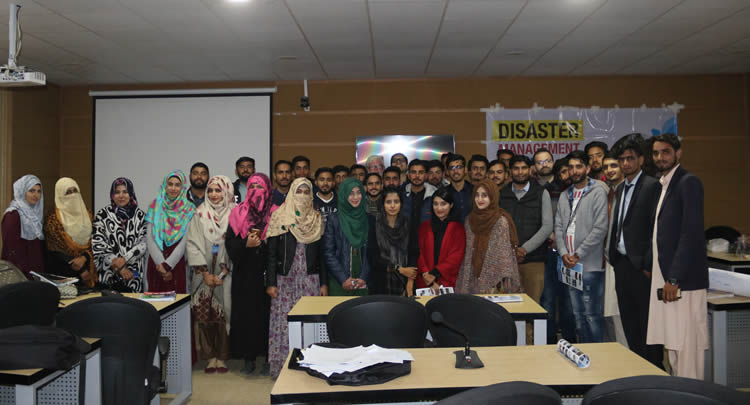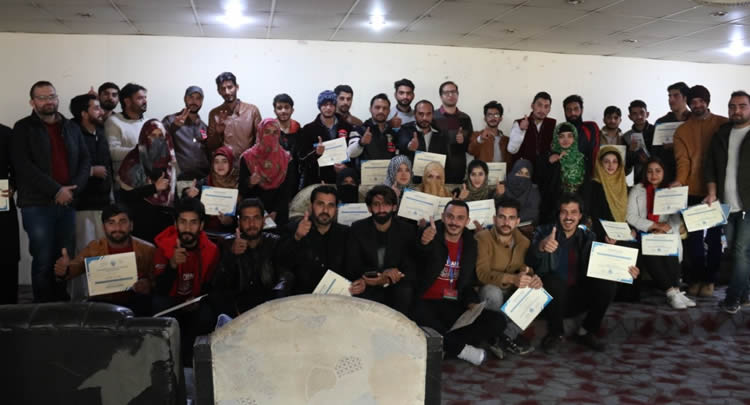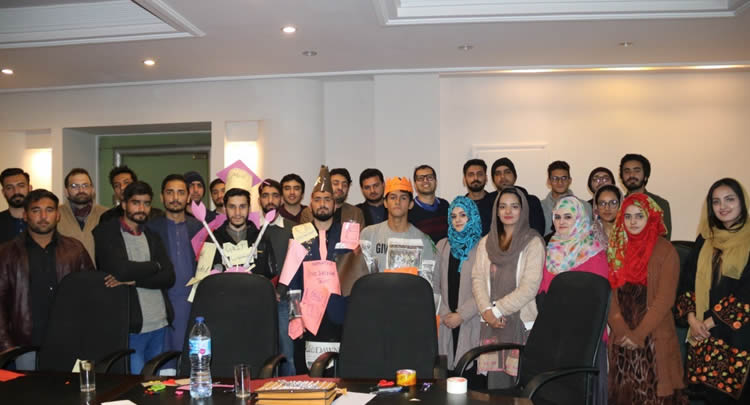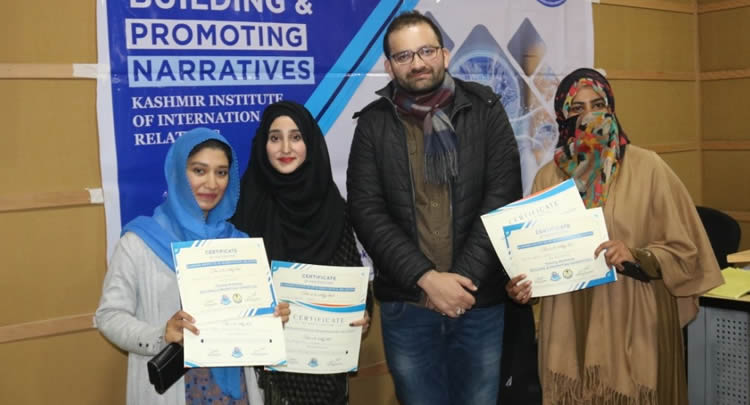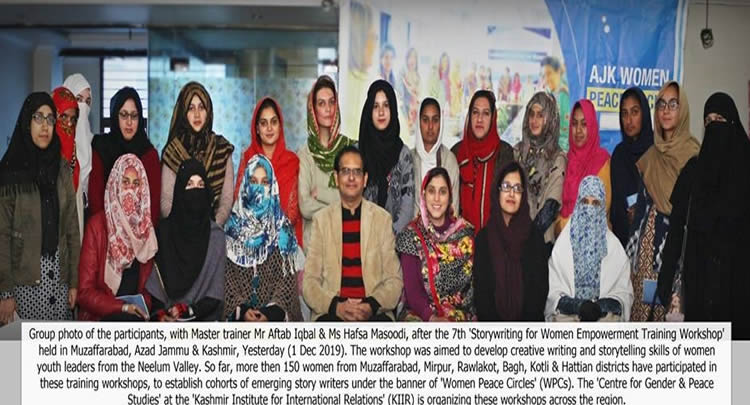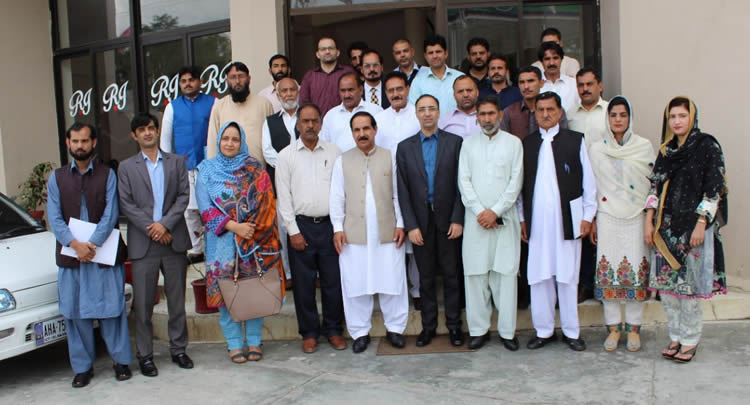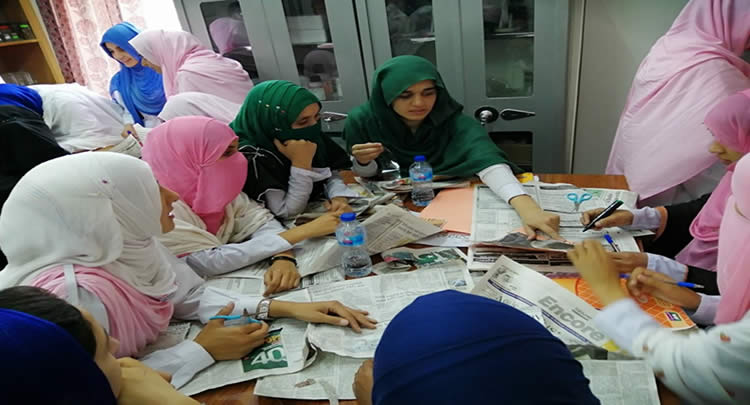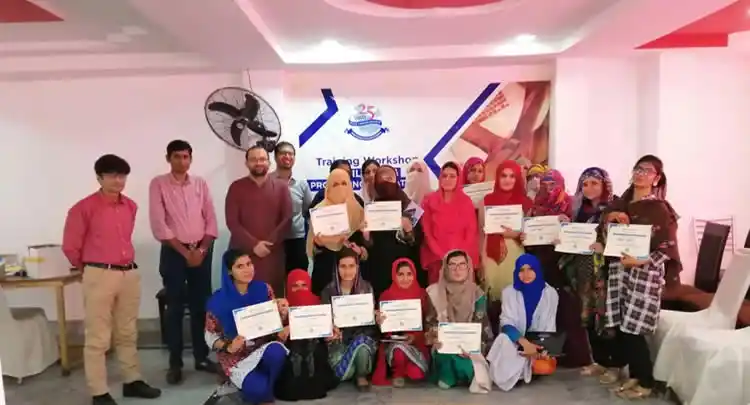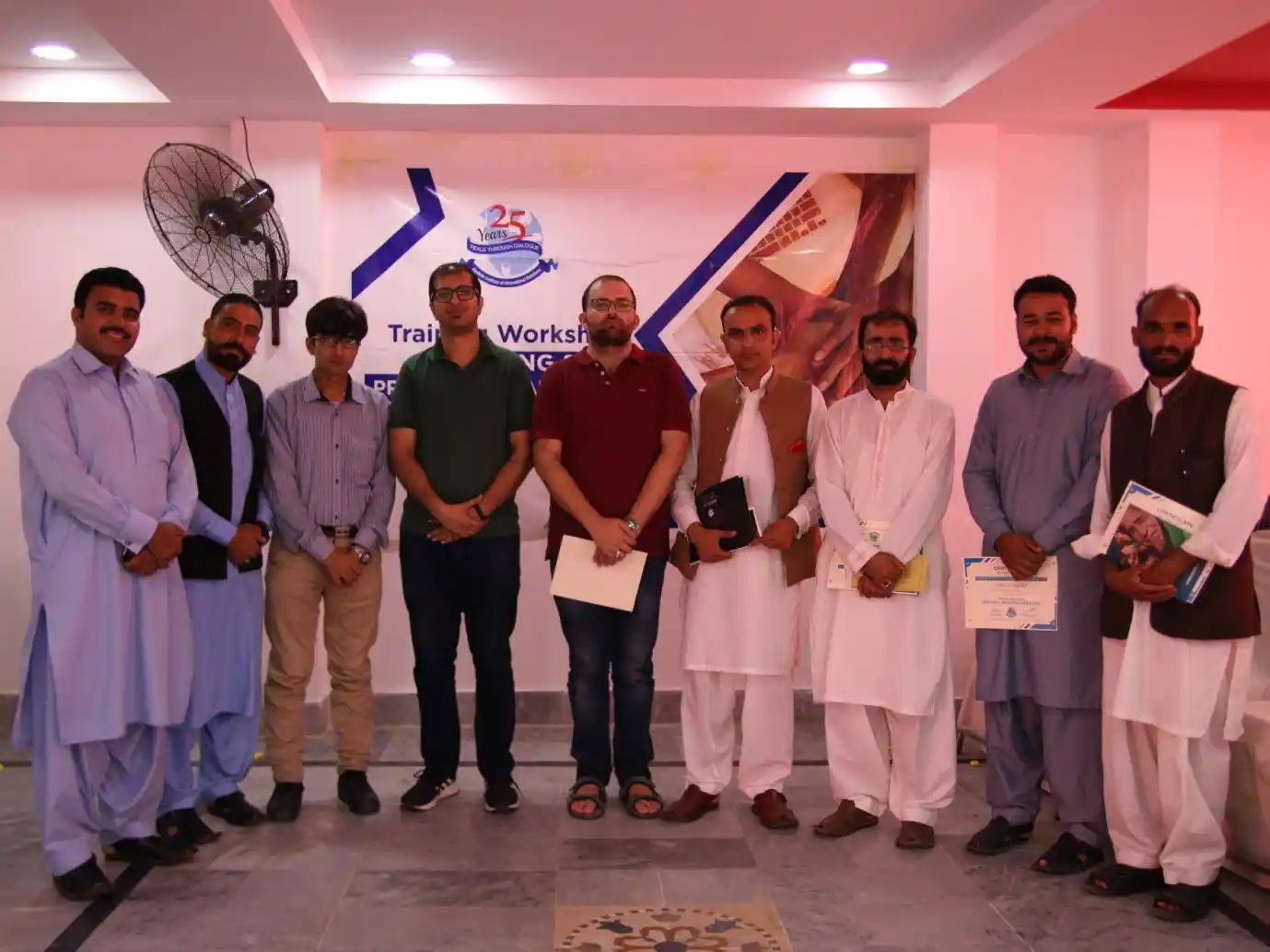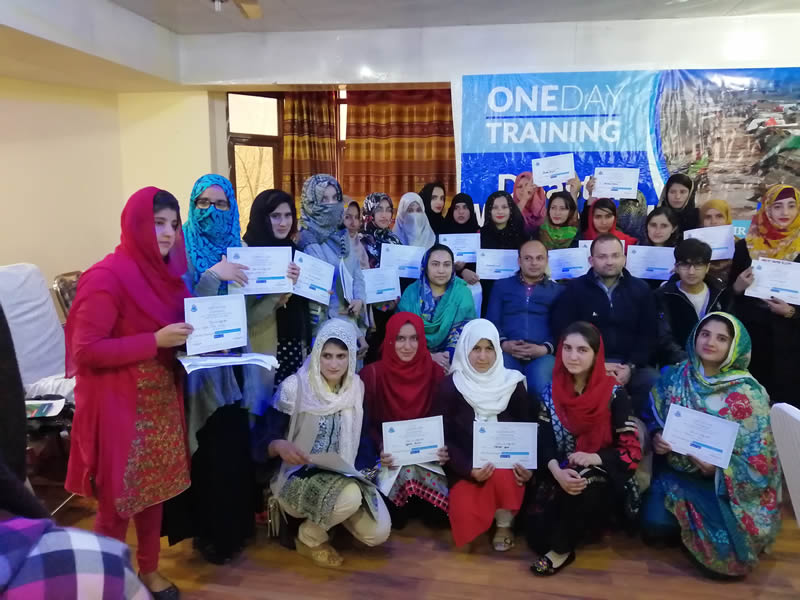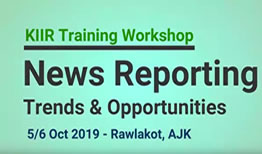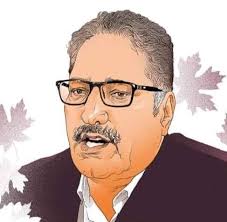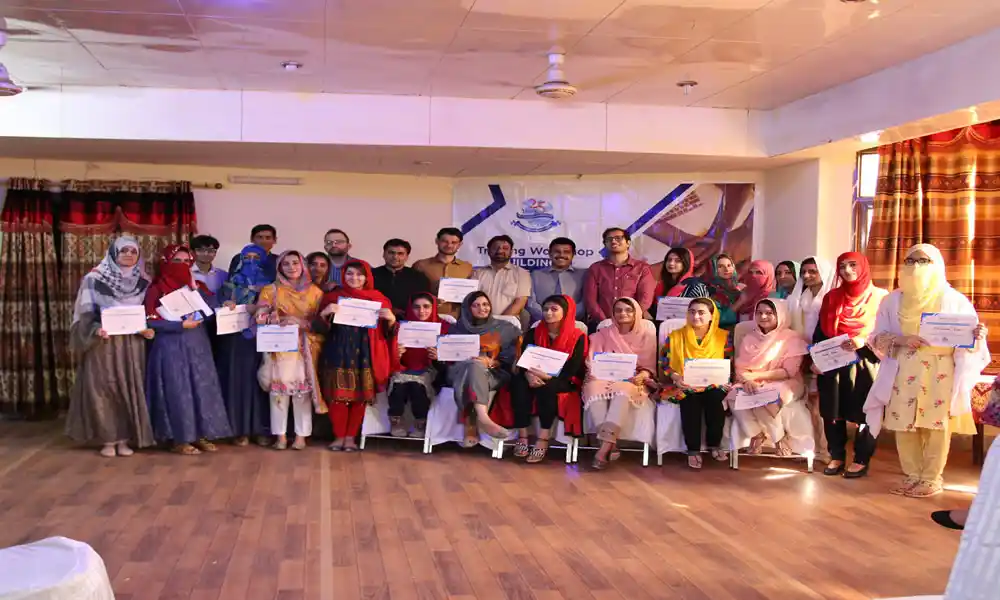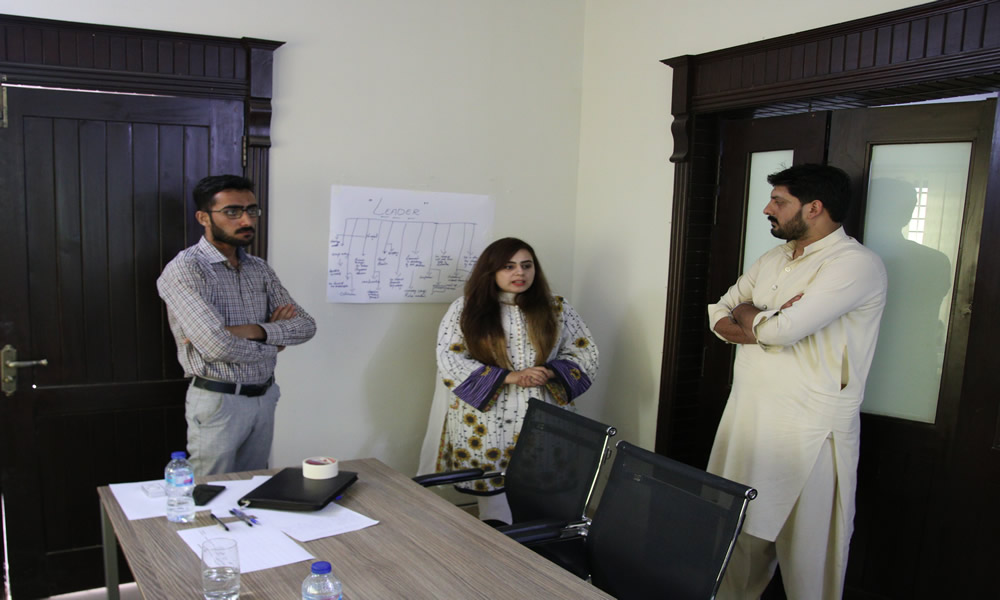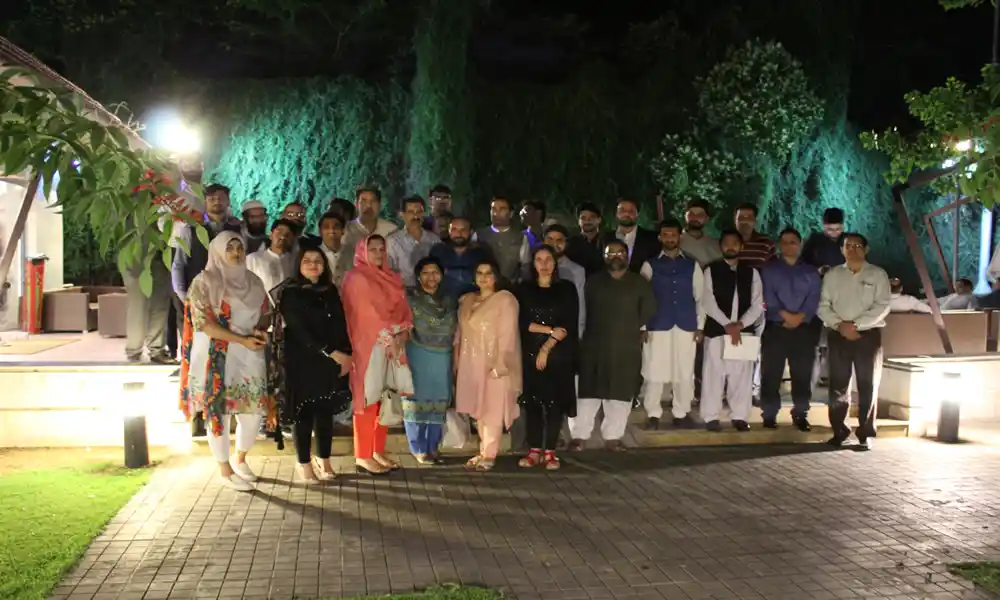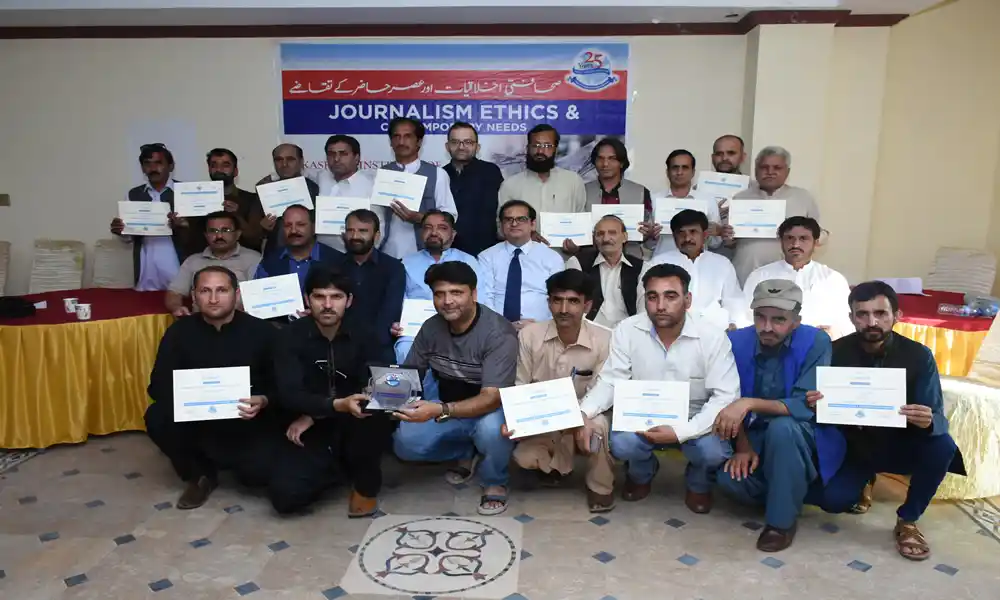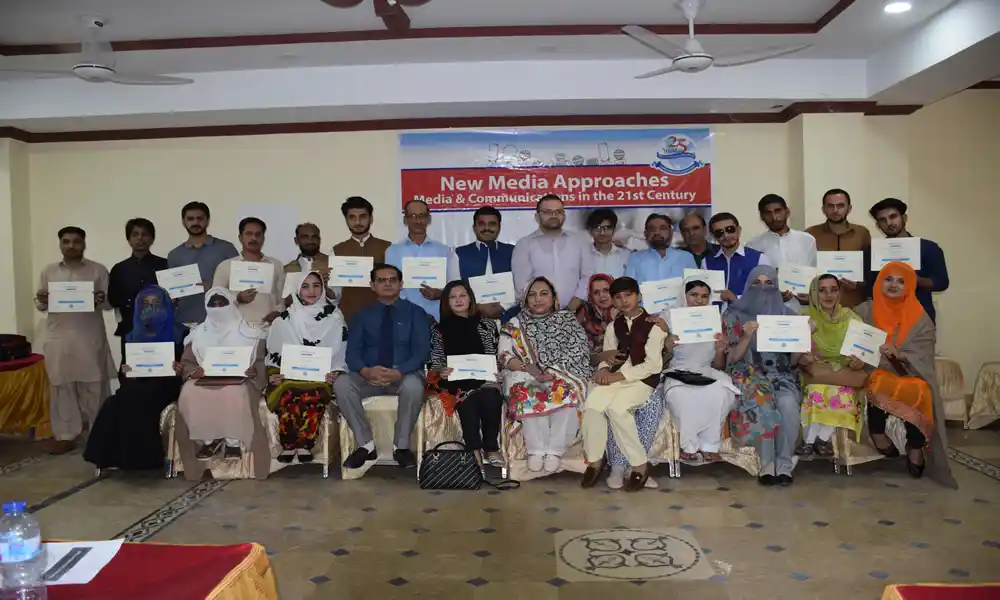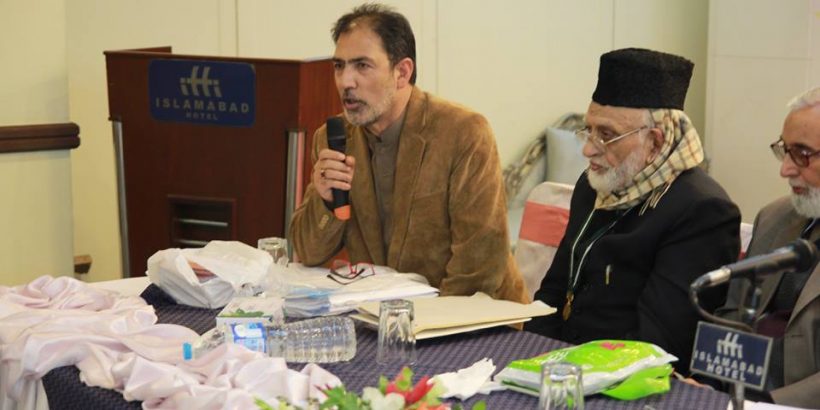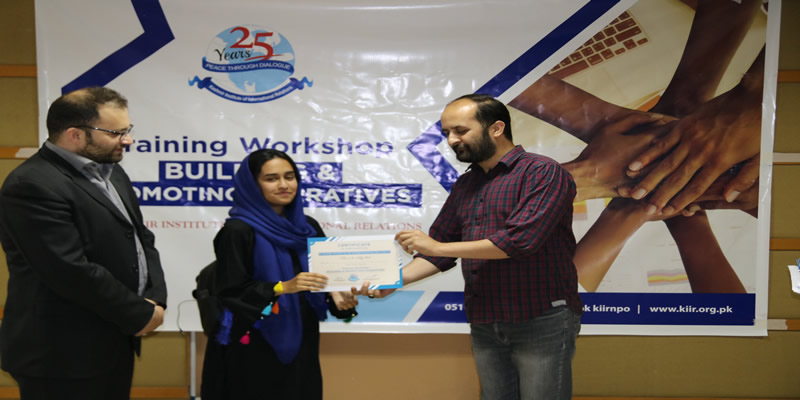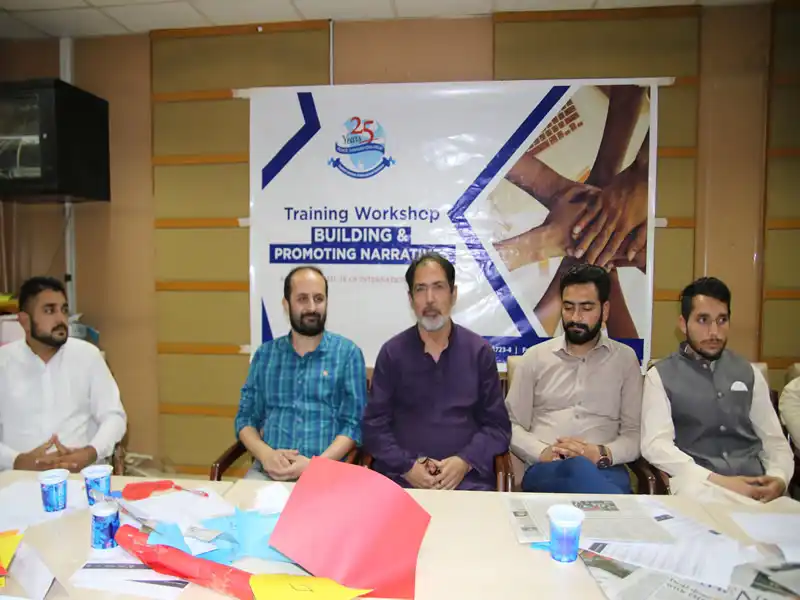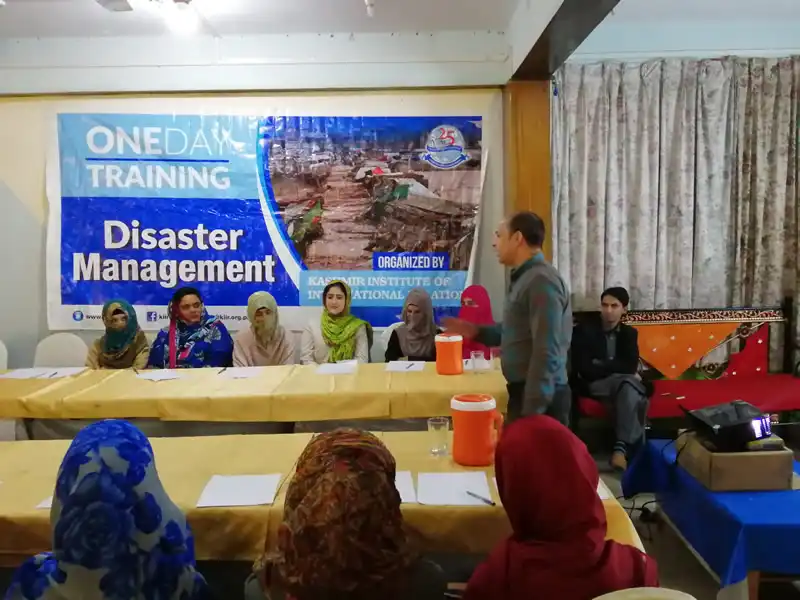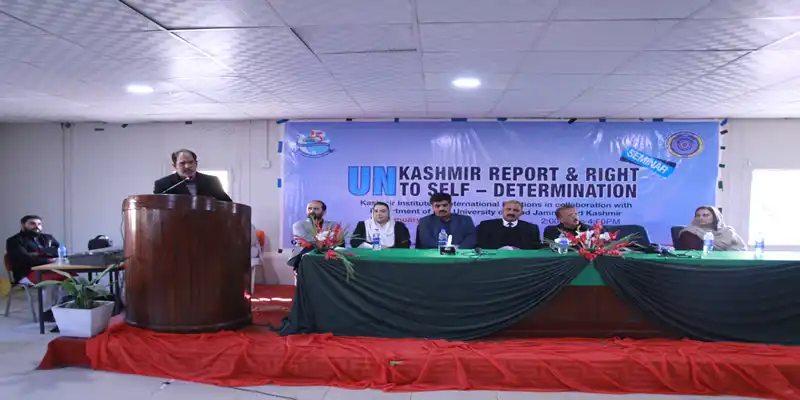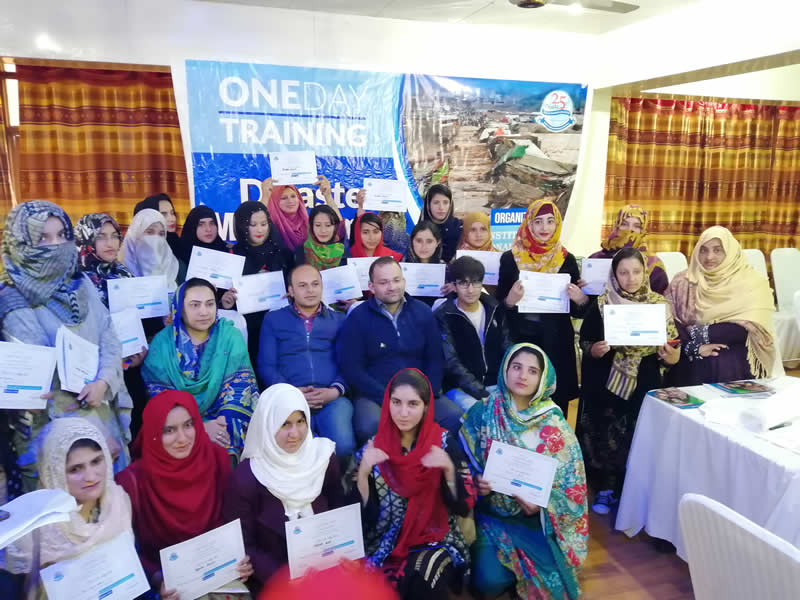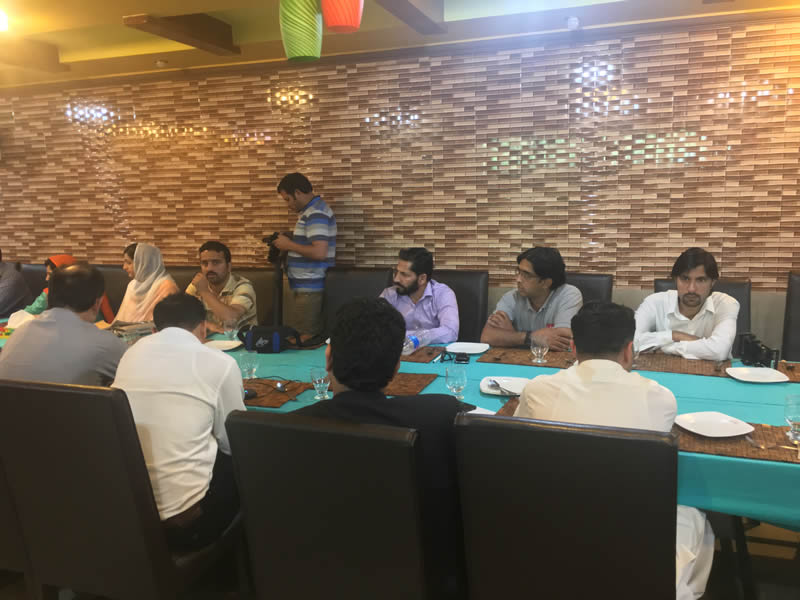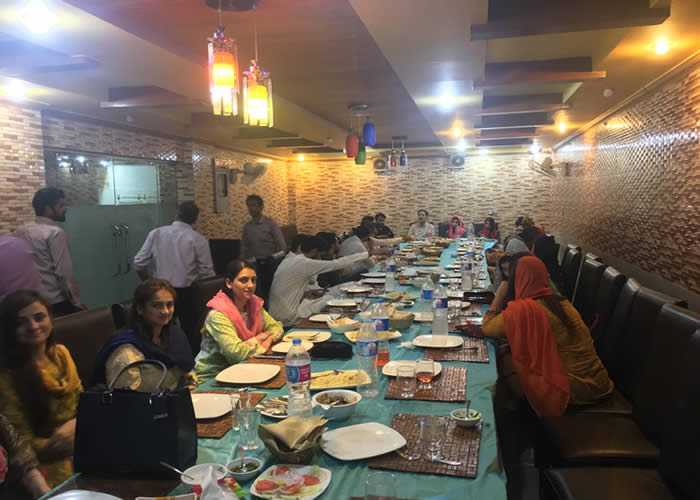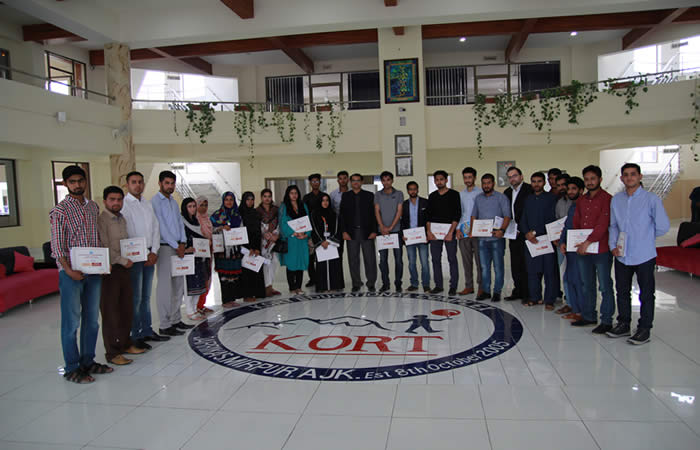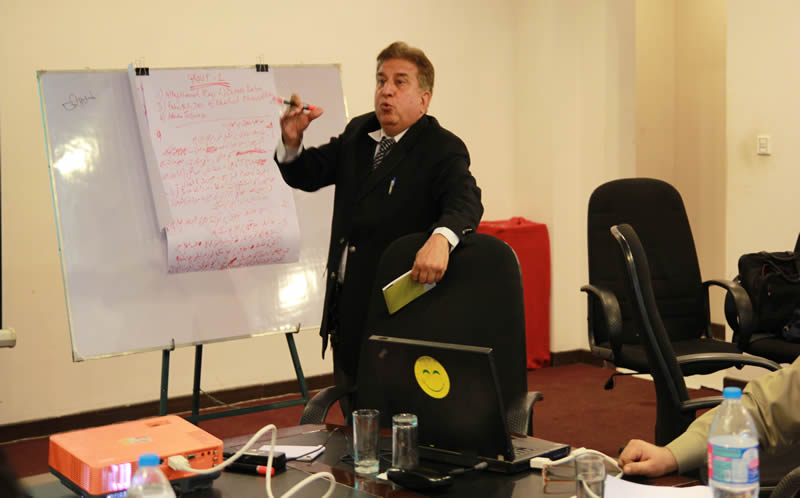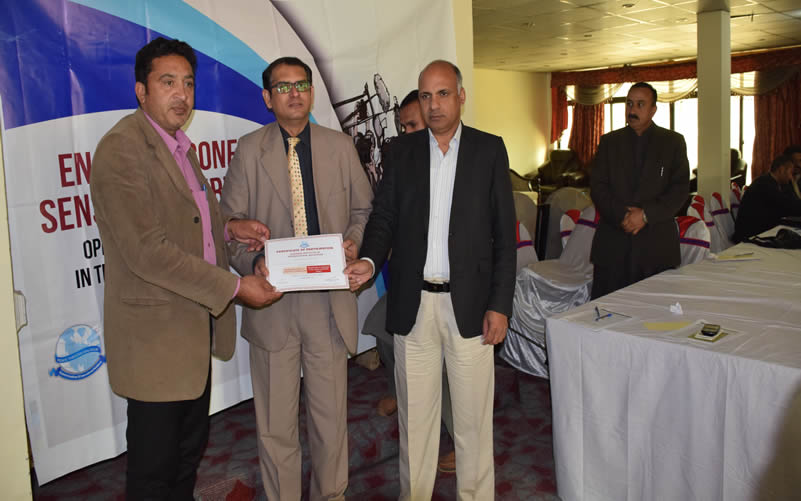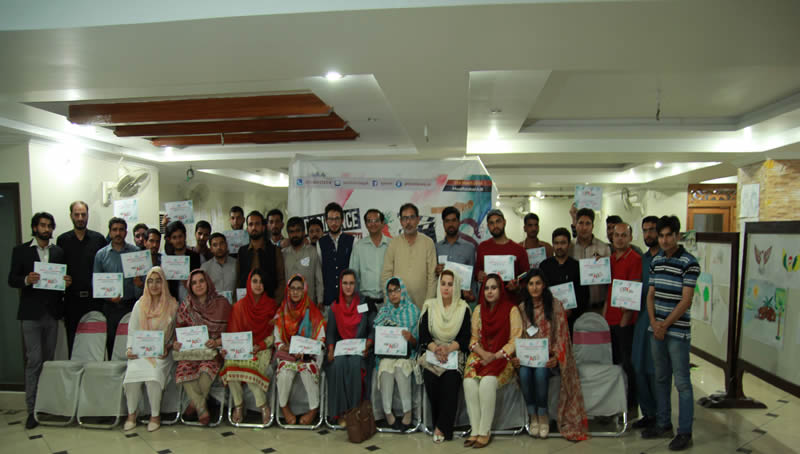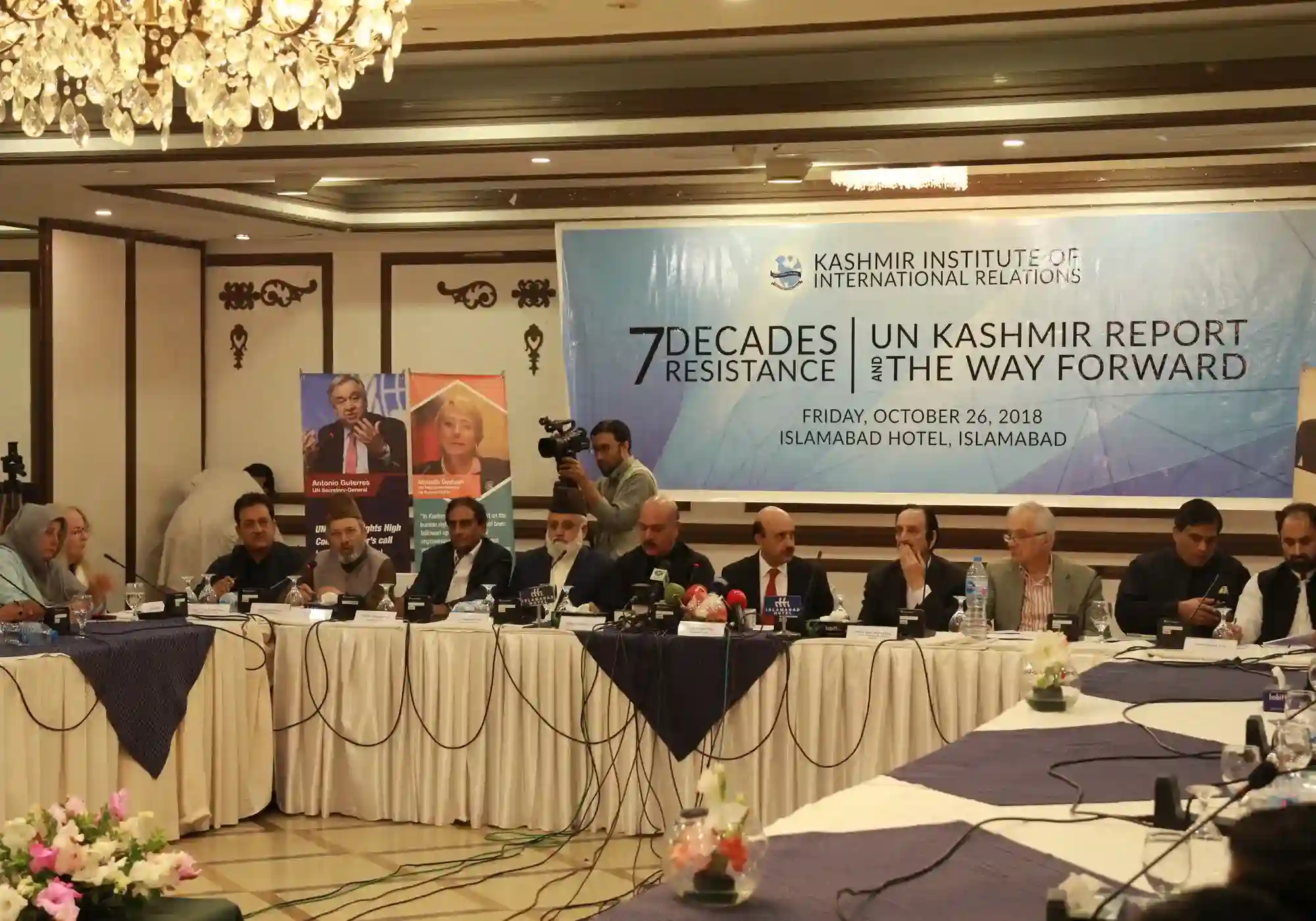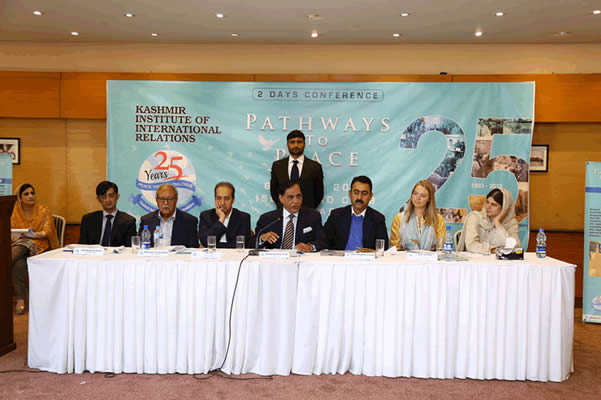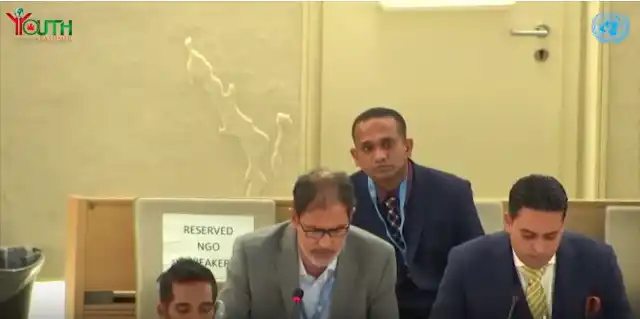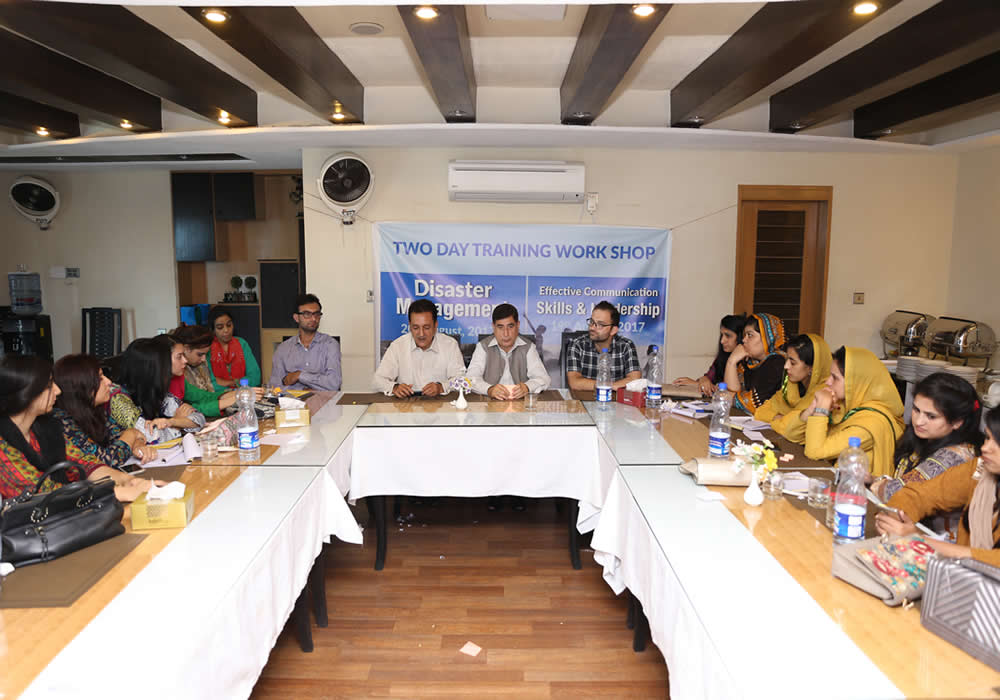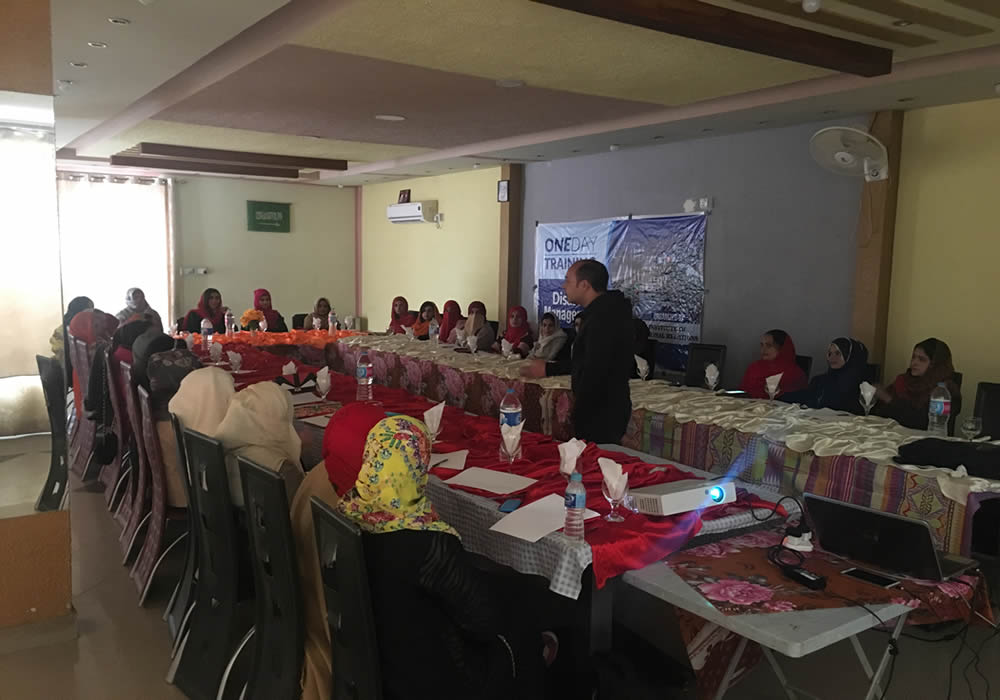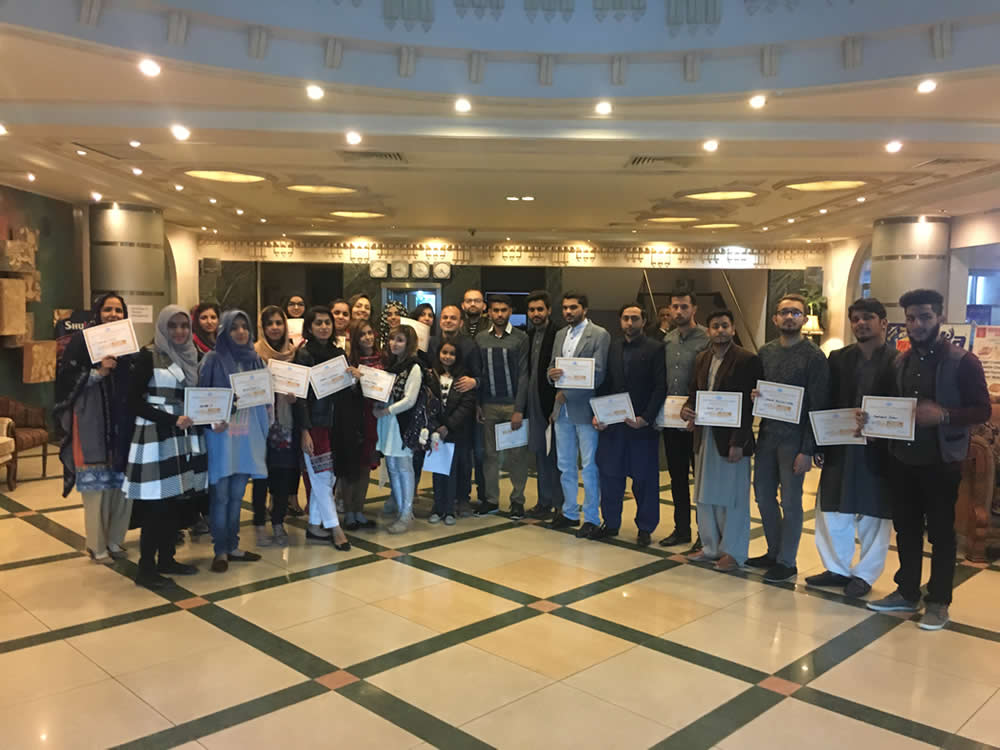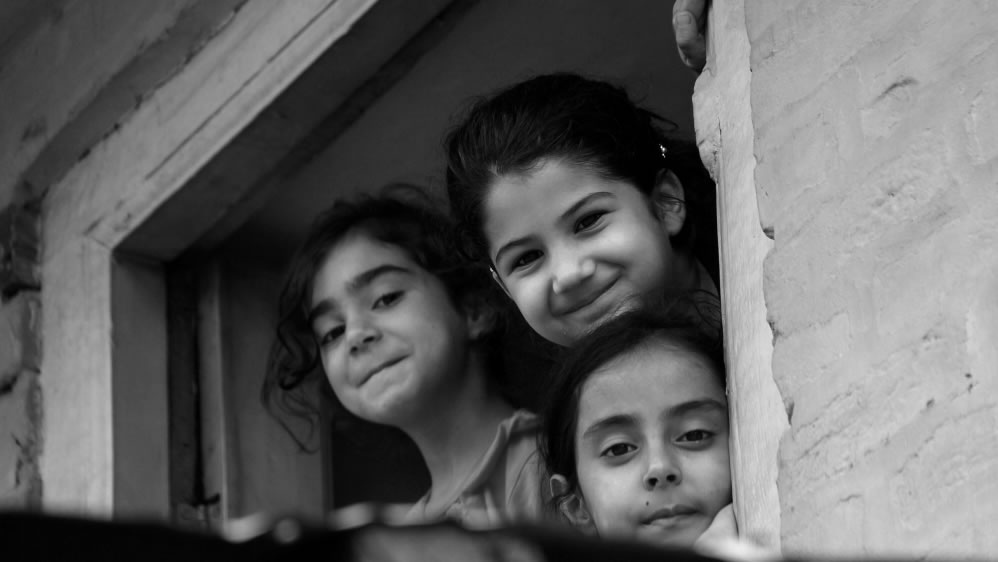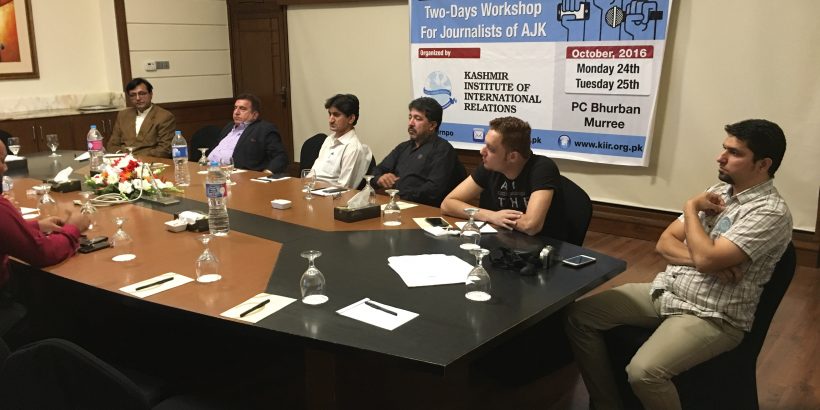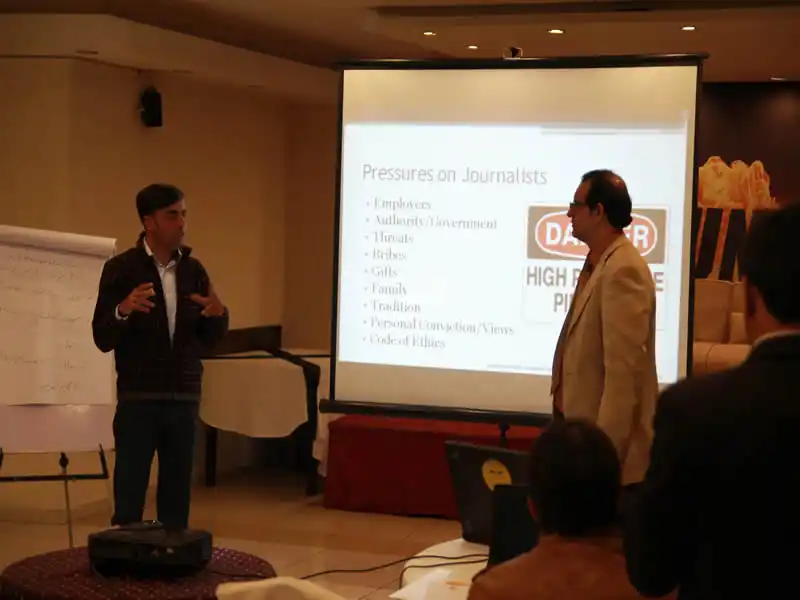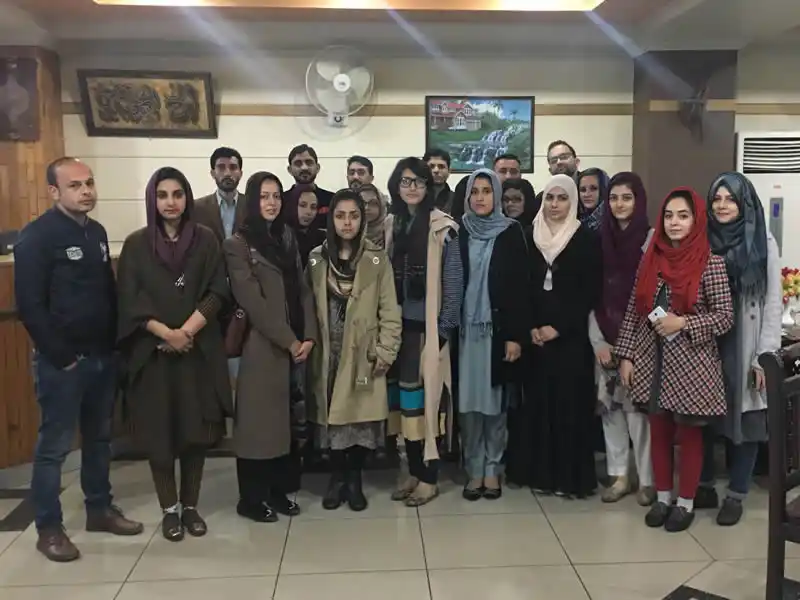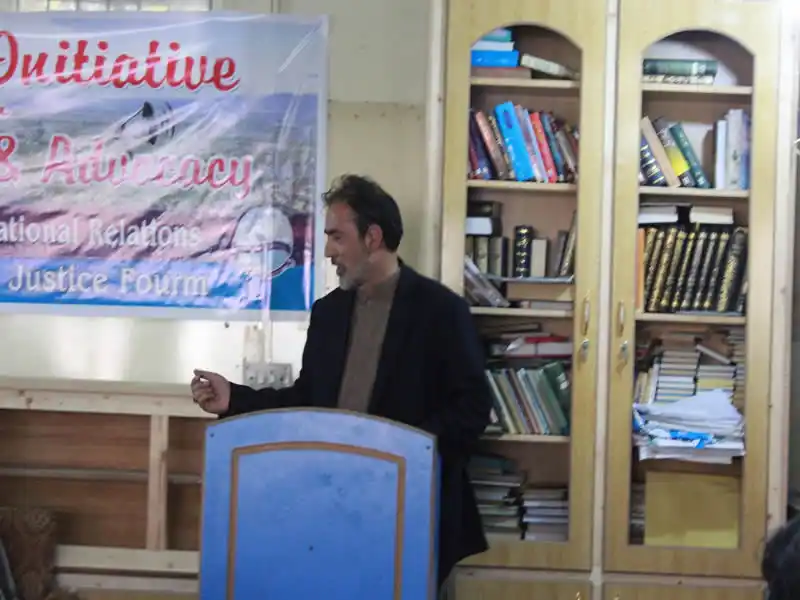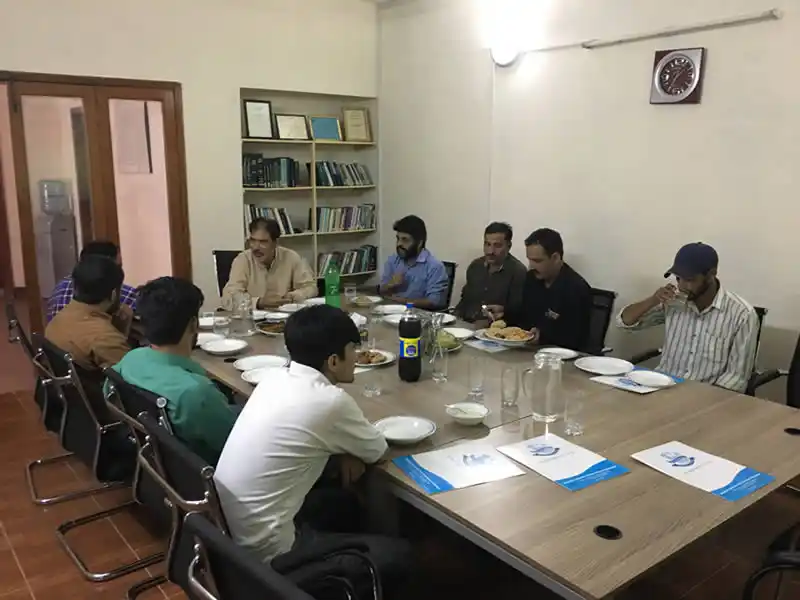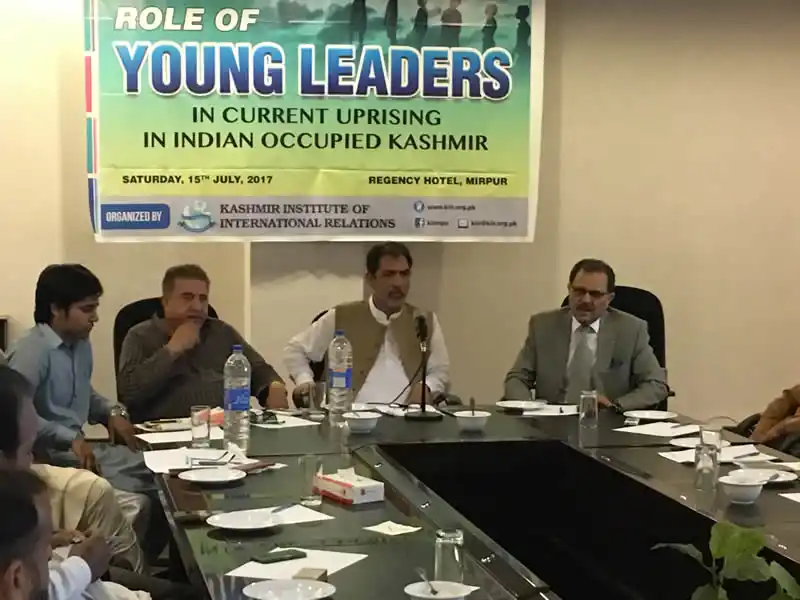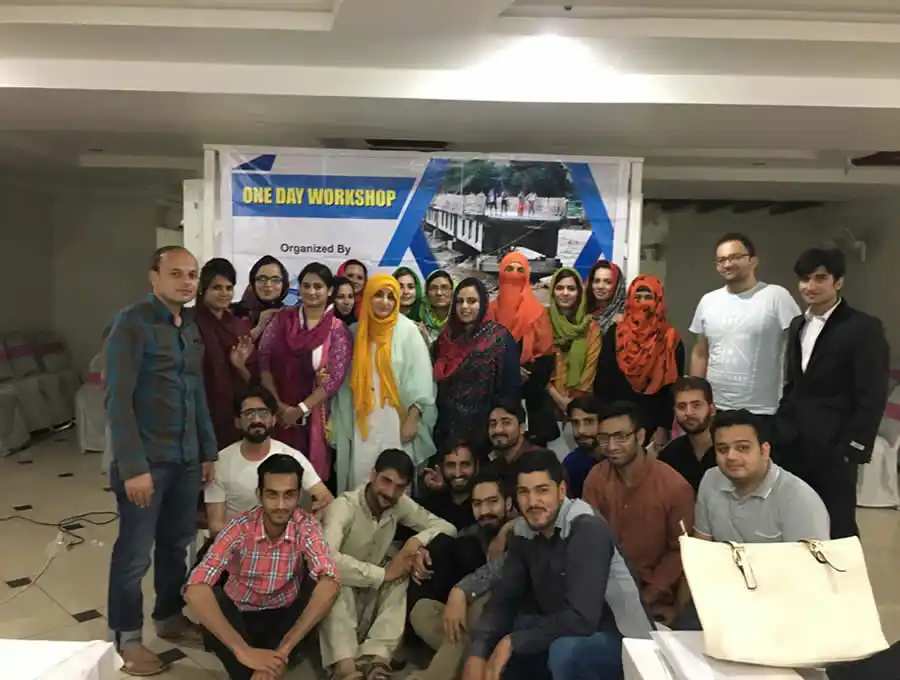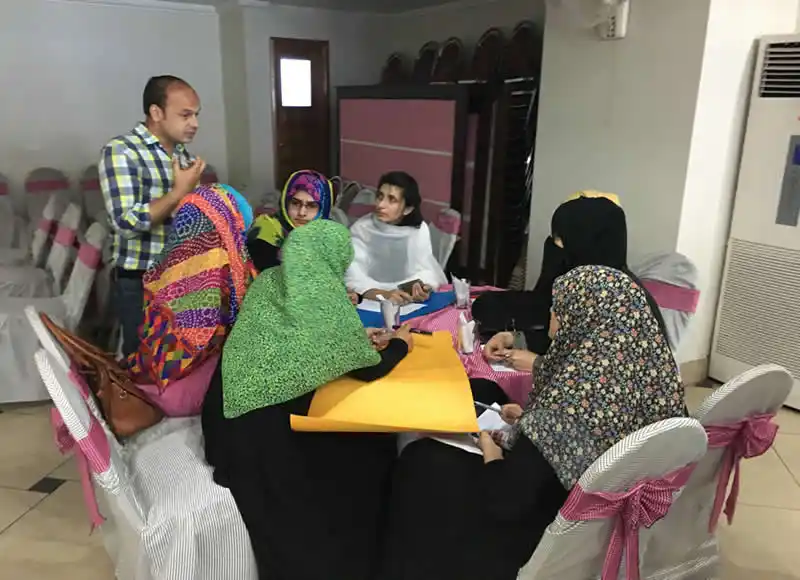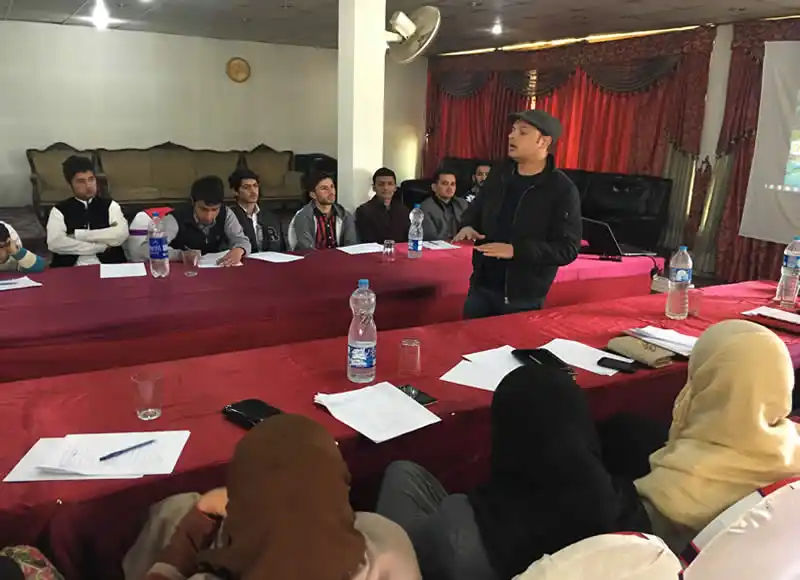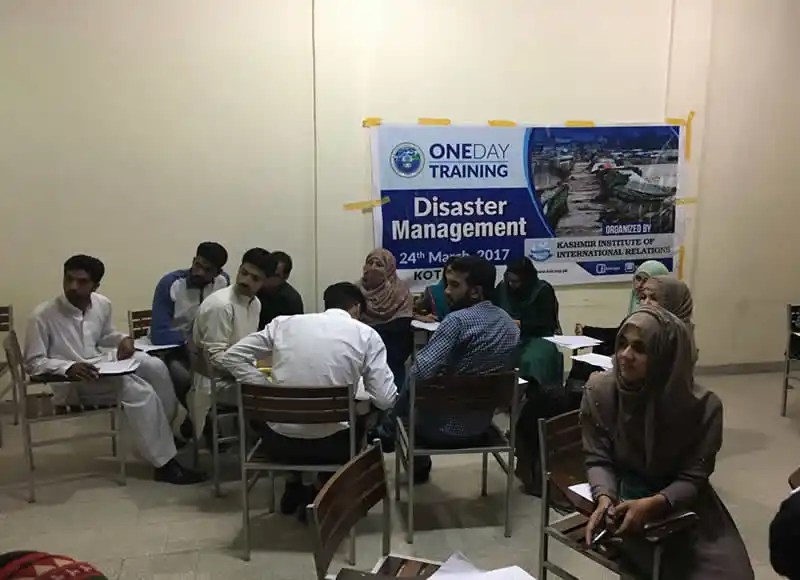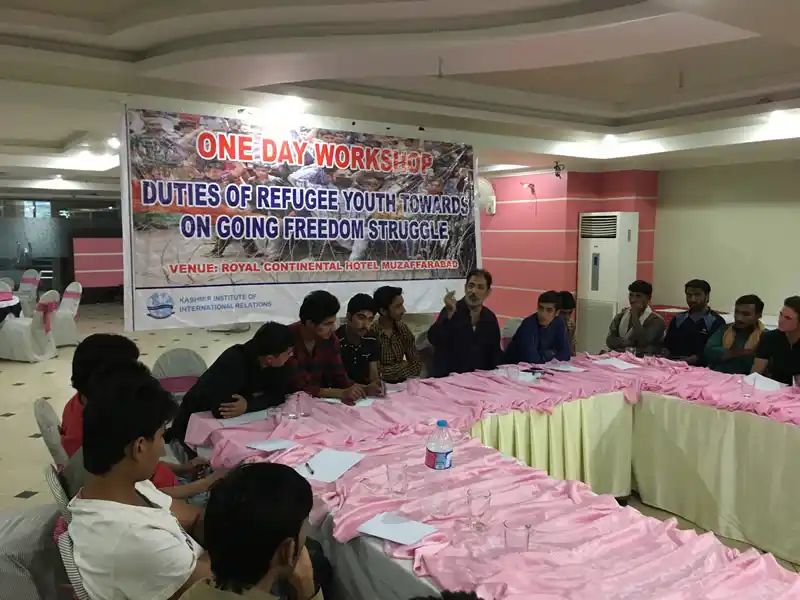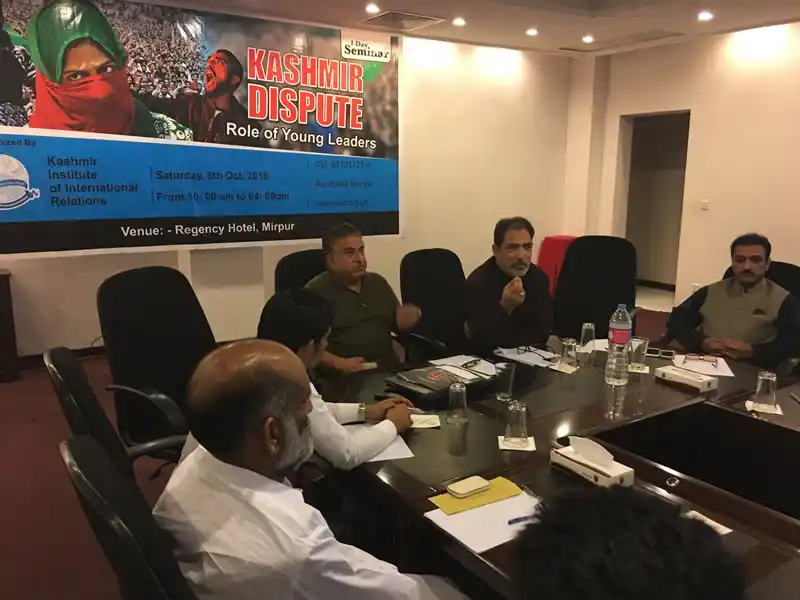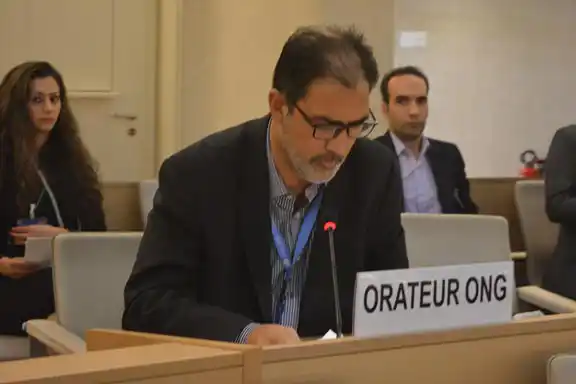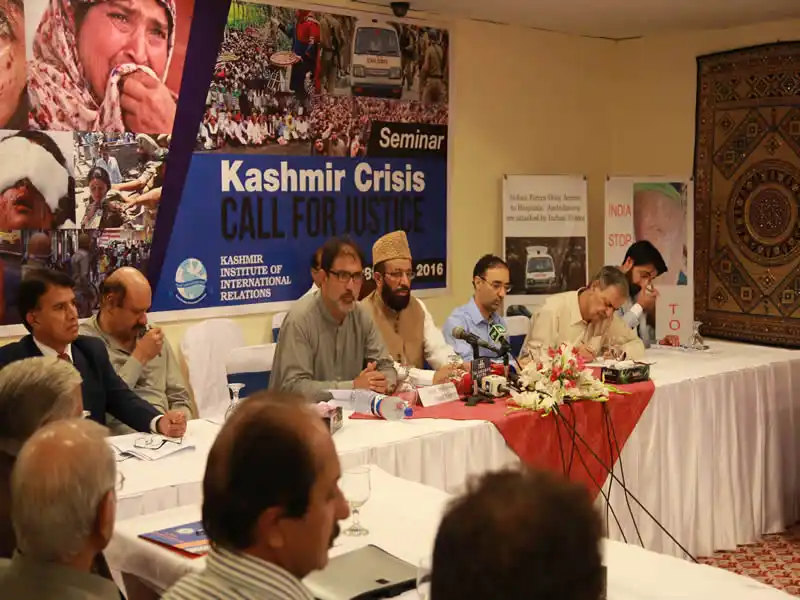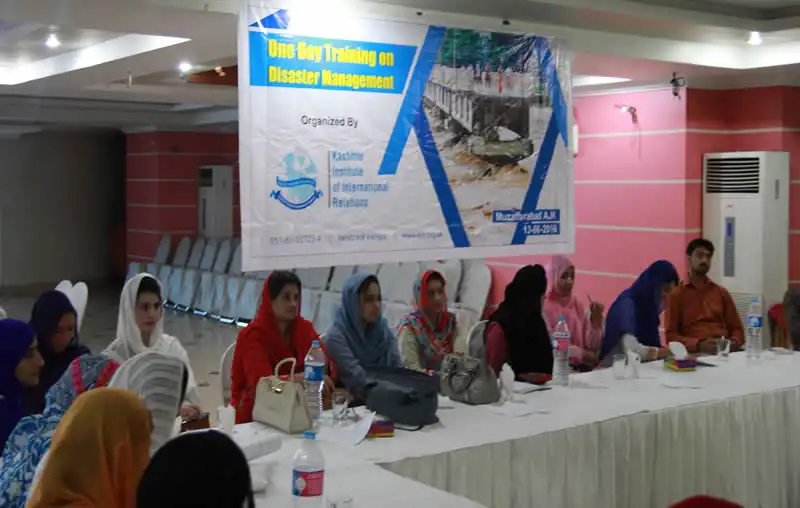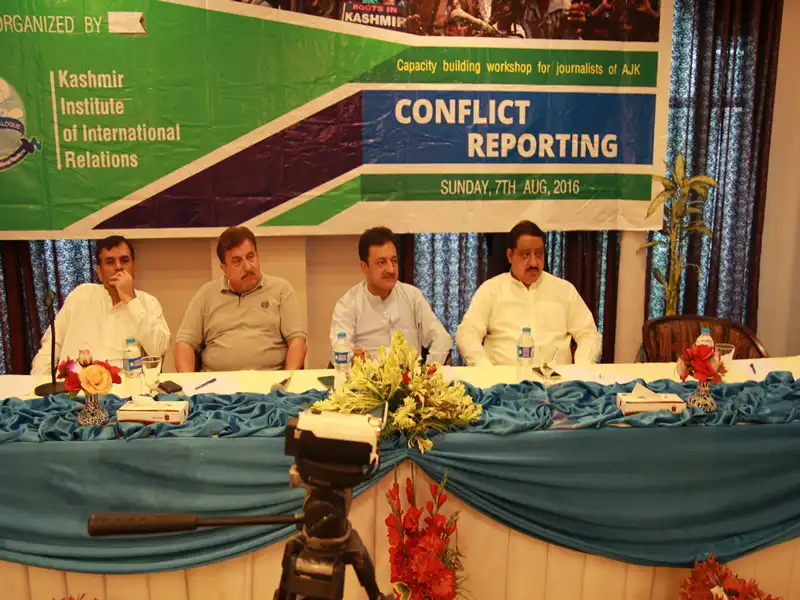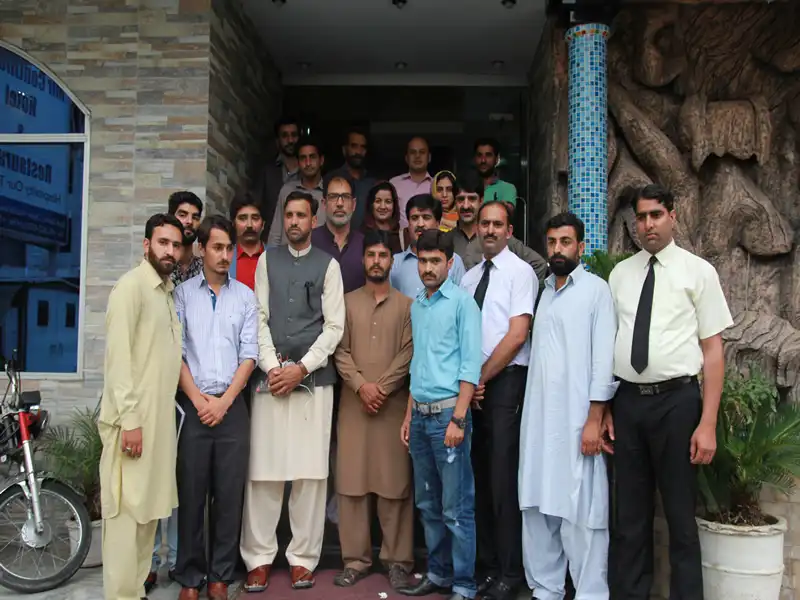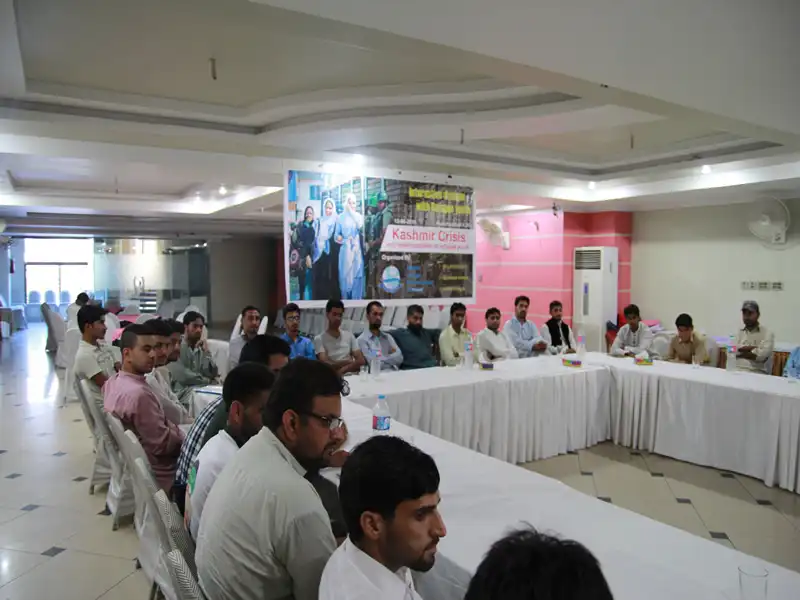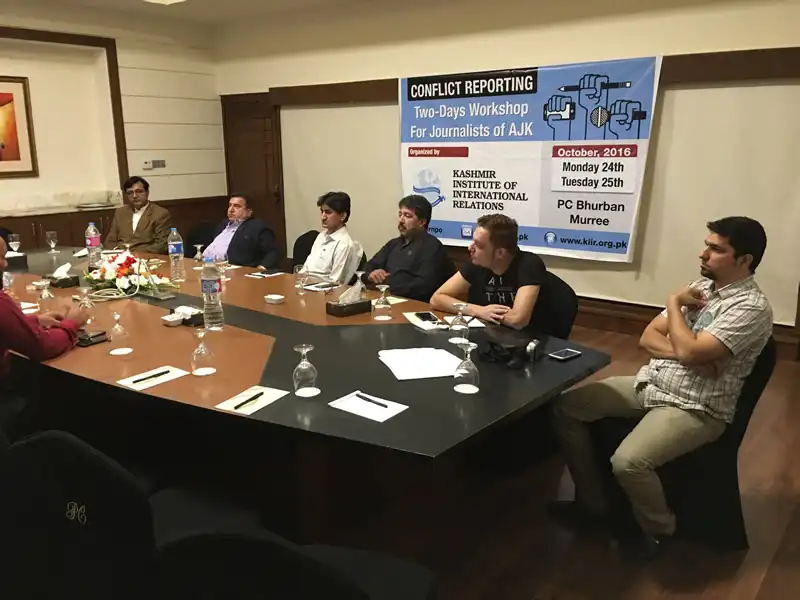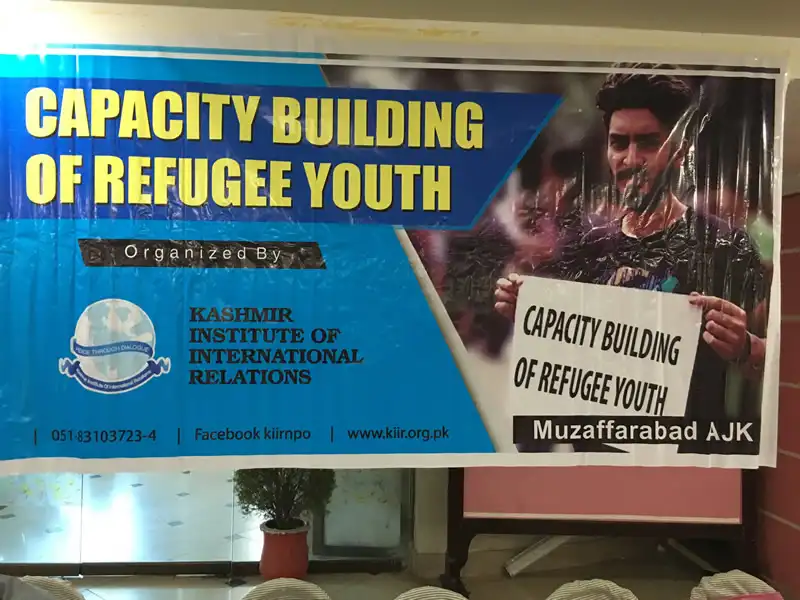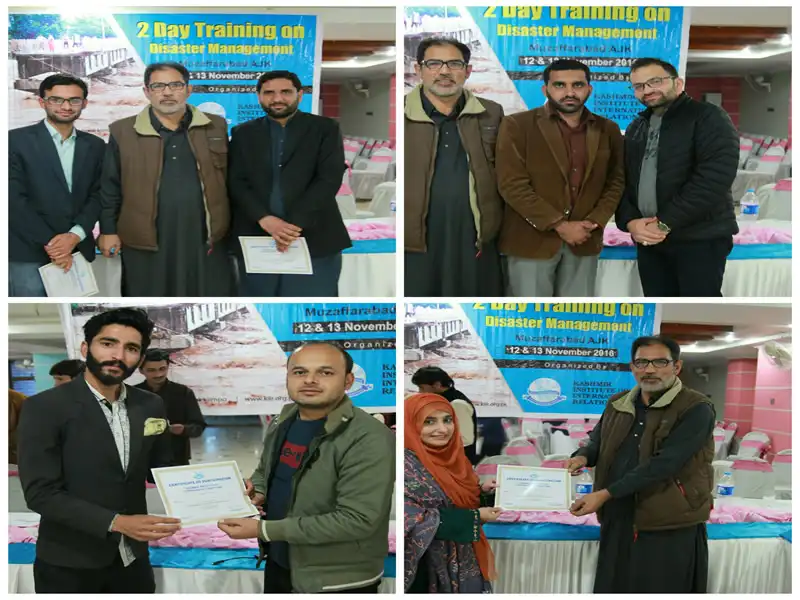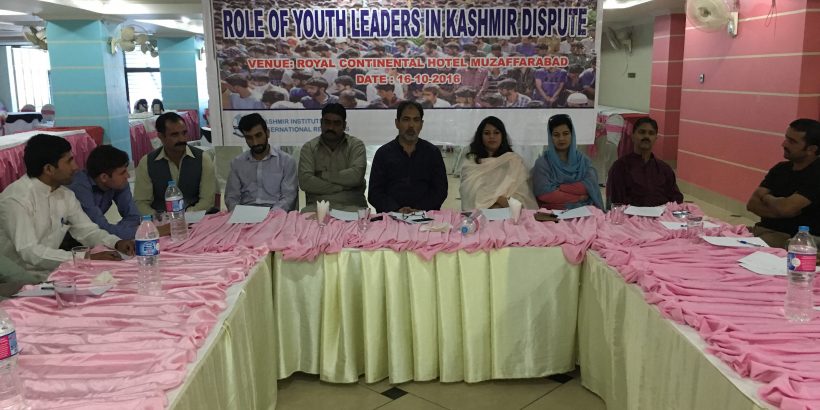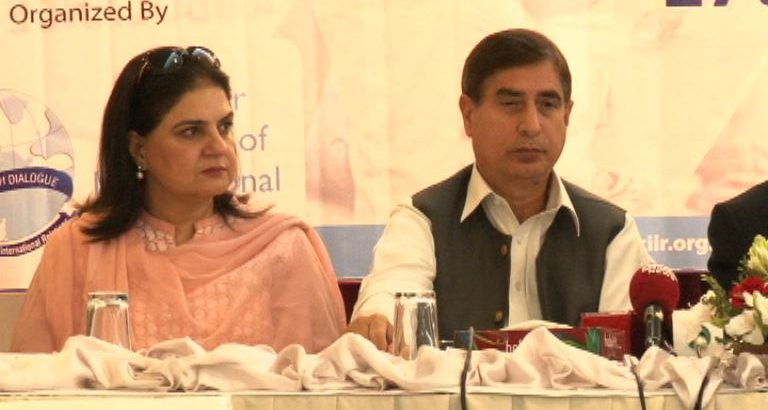Capacity Building of Journalist of Mirpur, AJK
Capacity Building of Journalist of Mirpur, AJK
Posted on 2/25/2018
Introduction
Aiming to raise the standards of Quality journalism Kashmir Institute of International Relations in collaboration with Jammu and Kashmir Joint Media Forum (JKJMF) organisedtraining workshops in Mirpur and Rawlakot, Azad Jammu Kashmir. The topic was “Enabling Conflict Sensitive Journalism – Opportunities & Challenges in the Jammu & Kashmir region”. For past many years Kashmir Institute of International Relations (KIIR) has workedwith some of the most respected names of AJK in the field of Journalism. The KIIR forum has agreed upon the vision, which underlines the need to have exchange of information, news, views and tackling the issue of journalists' welfare.
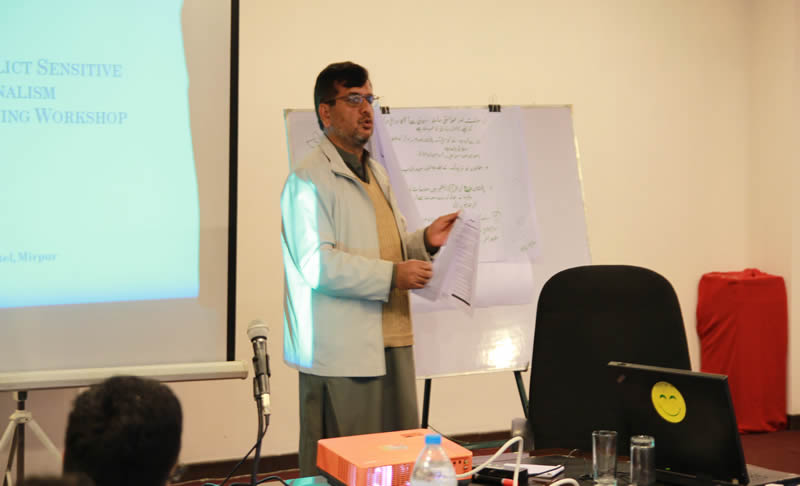
Objectives
The main objective of these training workshops is to highlight common and Sensitive issues of conflict based journalism of AJK journalists, the difficulties which they are facing while practicing their profession and also encourage young journalists to participate more and more in such trainings to get national & international exposure. Following are the main points of this workshop.
• Enhancement of journalistic skills by introducing reporting techniques andtechnology tools.
• Improve news writing in media organizations and improve quality of report writing
• To improvestandards of quality journalism and to highlight professional ethics of journalism.
• Getting familiar with the codes of conduct
Participants
Thirty-four journalists from print and electronic media houses and freelance bloggers participated in Mirpur workshop and Twenty-Seven journalists mostly from Print media participated in Rawlakot Workshop. Majority belonged to Urdu newspapers with an average working experience of less than 10 years. However, many were associated with news websites and TV/radio stations as well. Mr Aftab Iqbal (Director – Pakistan Center for Development Communication) was the lead facilitator while Mr Raja Kafil Ahmed (Correspondent, Daily Jammu o Kashmir) and Altaf Hamid Rao (Bureau Chief, Associated Press of Pakistan, Daily the Nation) co-facilitated the workshop and shared their experiences of Conciliation Resources training workshop which was held in Bangkok Thailand in the month of January 2018.
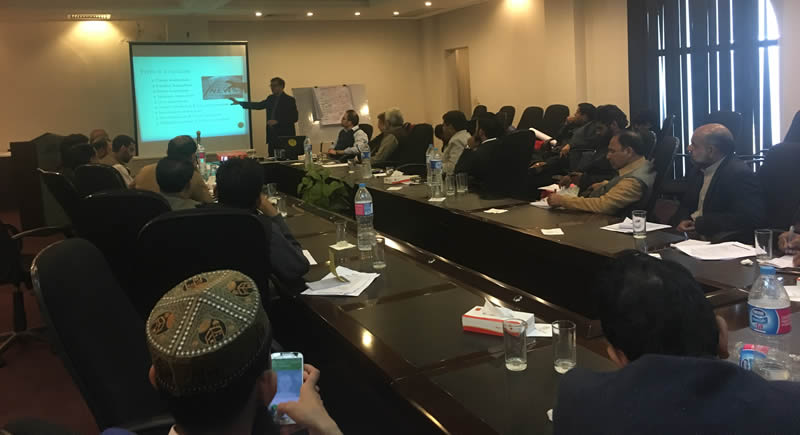
Timeline
The first workshop was held on 25 February 2018 in Mirpur and the second workshop was held on 4 March 2018 on the same topic “Enabling Conflict Sensitive Journalism – Opportunities & Challenges in the Jammu & Kashmir Region”.
Workshops were designed on participatory learning approaches, wherein facilitators used following interactive tools to inform, explore opinions and build consensus among participants.
• Lecture – by the facilitator to convey information, theories, and principles
• Presentations – individual and group deliberations by participants on various issues
• Brainstorming – individual and collective thinking on important issues
• Simulations - enactments of real-life situations
• Group discussions - participants sharing experiences and ideas or solving a problem together
• Interactive audio visual sessions – Movies and audio clips to initiate discussion and provide reference for group learning
Main topics
• Common understanding about Conflict Sensitive Journalism and its power to advocate
• Types of Journalism and media
• Situation of Media in Pakistan
• Challenges for objective journalism in the media
• Structure of News Organization
• Parts of Newspaper
• What is News (basic concept of News, News structure, News value, News sense, News generation, Sources of News, Kinds of News)
• News writing (introduction of News lead, News body, Background, Difference between print and Electronic media)
• How to Plan a News Story
• Journalistic Ethics and Codes of Conduct –
• How to Practice More Ethical Journalism
• Digital Journalism
• How to use digital journalism tools for effective reporting
Methodology
During the training, participants learned about how media organizations are structured in terms of editorial decision-making and administrative matters. They were also briefed about parts of a newspaper and how different organizations view them, for readerships interest and according to their policy.
The facilitator used an innovative technique for introduction of participants. During the session, it emerged that many participants had never received any formal education on conflict sensitive journalism or participated in any professional journalists training before this event. It was for this reason; they lack understanding of contemporary debates about professionalism and ethics in the media or peace building. It was also observed that in the line of duty, many participants had faced violence, intimidations, restrictions, threats and criminal cases from government particularly police, and local political and social groups in the past. During the session, the facilitator shared several terms that are frequently used in newsrooms around the world. However, majority found it difficult to offer any explanation or definition for the terms. The session was highly interactive and helped participants to understand the diversity of issues that are impacting upon local media.
In the next session, the facilitator presented statistics about dimensions of media growth and freedoms in the country. Participants discussed different challenges for media including low levels of literacy in the society, decreasing purchasing power of readers, lack of communication infrastructure in rural areas, high costs of printing and production of media, low business and economic support to media, government controls on public advertising and many others.
Participants discussed their style of working in respective media organization after learning about characteristics of news. They learnt about the 5W’s and ‘H’ of news; and how to develop news with the help of inverted pyramid. Several reporters presented their approach of going to the field; and how they present facts to the readers. The facilitator highlighted importance of story planning and gave useful tips to enhance quality of reporting.
After that, in a group discussion exercise, participants reviewed a TV news report. They analyzed the report for its news worthiness, production quality, objectivity, fairness, correctness and credibility. The discussion was informative and engaging as several unique ideas were shared with regards to local cultural, economic and environmental cycles.
An important part of this workshop was discussion on codes of ethics for journalists. The facilitator shared three models and explained how they were developed. Later on, participants were invited to read in groups, all codes of ethics and share their opinions about how they are relevant to local context.
In the next workshop, participants were apprised with use of information and communication technologies for journalism; and how journalists can improve their work with the help of these advancements.
Different types of digital content platforms were shared. With the help of digital content wheel, participants analyzed their usage of digital media for educational, information, entertainment, inspirational, support and advocacy needs. They learnt about differences between traditional and digital journalists and how change is putting pressures on both types of professionals.
To refine their skills in digital journalism, facilitators informed the participants’ about seven steps of successful storytelling. They shared information about software, hardware and knowledge resources that are required for effective digital journalism. By developing their own news reports, participants worked in groups on local issues and presented their outputs.
In the end, participants received certificates from KIIR team.
| S.No. | Name | Organization | Designation |
| 1 | Ijaz Fazal | UK44 Bradford | Bureau Chief |
| 2 | Ramzan Chugtai | Daily Khabrain, Mirpur | Bureau Chief |
| 3 | Aftab Iqbal | Trainer | |
| 4 | Waleed Khan | KIIR | Finance & Program Manager |
| 5 | Zafar Mughal | Daily Urran | Resident Editor |
| 6 | Farukh Dar | JK News | Anchor Person |
| 7 | Hamayun Zaman Mirza | Jammu Kashmir Human Rights Commission | Chairman |
| 8 | Kh Abdul Mateen | Daily Kashmir Link | Editor |
| 9 | Adnan Jabbar Mughal | Daily Urran | Correspondent |
| 10 | Ch Khalid Mehmood Anjum | Journalist | |
| 11 | Rizwan Azam | KIIR | Program Manager |
| 12 | Nawazish Abbas | JK News | Anchor Person |
| 13 | Amir Hanif | Daily Kashmir Nama | Staff Reporter |
| 14 | Malik Shazad Siddique | Radio AJK | Producer |
| 15 | Syed Abid Hussain Shah | Geo News | Bureau Chief |
| 16 | Kamran Abid Bukhari | Dunya News | Correspondent |
| 17 | Altaf Hamid Rao | APP, Daily The Nation | Bureau Chief |
| 18 | Shabaz Azad Raja | Roznama Roshnak | Correspondent |
| 19 | Zahoor Rashid | JK News | Correspondent |
| 20 | Syed Shabaz Bukhari | Geo News | Cameraman |
| 21 | Syed Sajjad Bukhari | ARY News | Correspondent |
| 22 | Raja Kafil Ahmed | Daily JK | Group Editor |
| 23 | Ikram | UK44 | Cameraman |
| 24 | Waqas Siddique | Kashmir Times | Bureau Chief |
| 25 | Ch Khalid Hussain | Kashmir Press Club Bhimber | Correspondent |
| 26 | Rizwan Akram Khan | Samaa TV | Correspondent |
| 27 | Aamir Saleem Awan | Neo News | Correspondent |
| 28 | Muhammad Zafeer Baba | Daily Urran | Editor |
| 29 | Umair Asghar | Daily Shaheen | Editor |
| 30 | Arshad Butt | Ausaf | Bureau Chief |
| 31 | Bilal Rafiq | AK Radio | Anchor Person |
| 32 | Attiq Ahmed Sadozai | Kashmir Times | Deputy Editor |
| 33 | Zafar butt | Dunya News | GM Dunya News |
| 34 | Sajjad Qayyum | Kashmir Press Club Mirpur | General Secretary |
| 35 | Raja Arshad Khan | Column Writers | |
| 36 | Murtaza Ali Khaksar | Daily Hayat | Editor |
| 37 | Sardar Abid Hussain | PTV News | Correspondent |
More Activities
